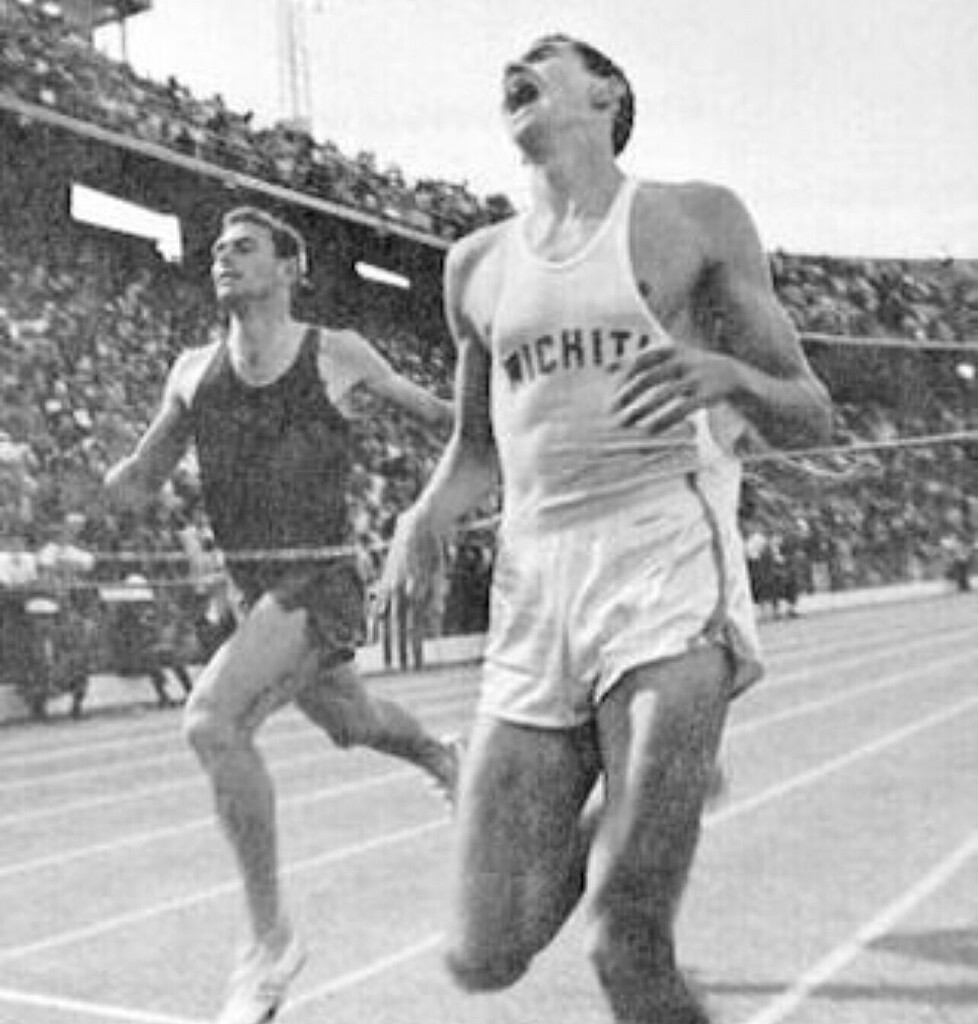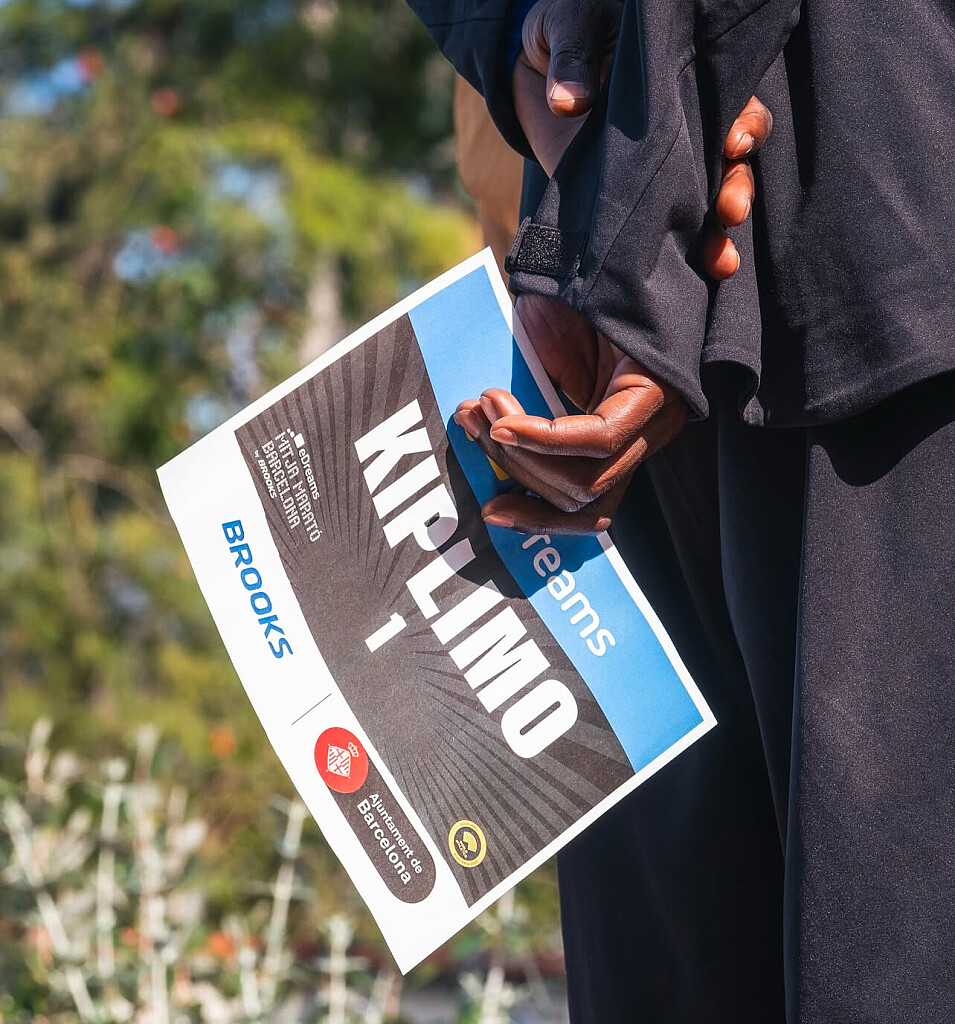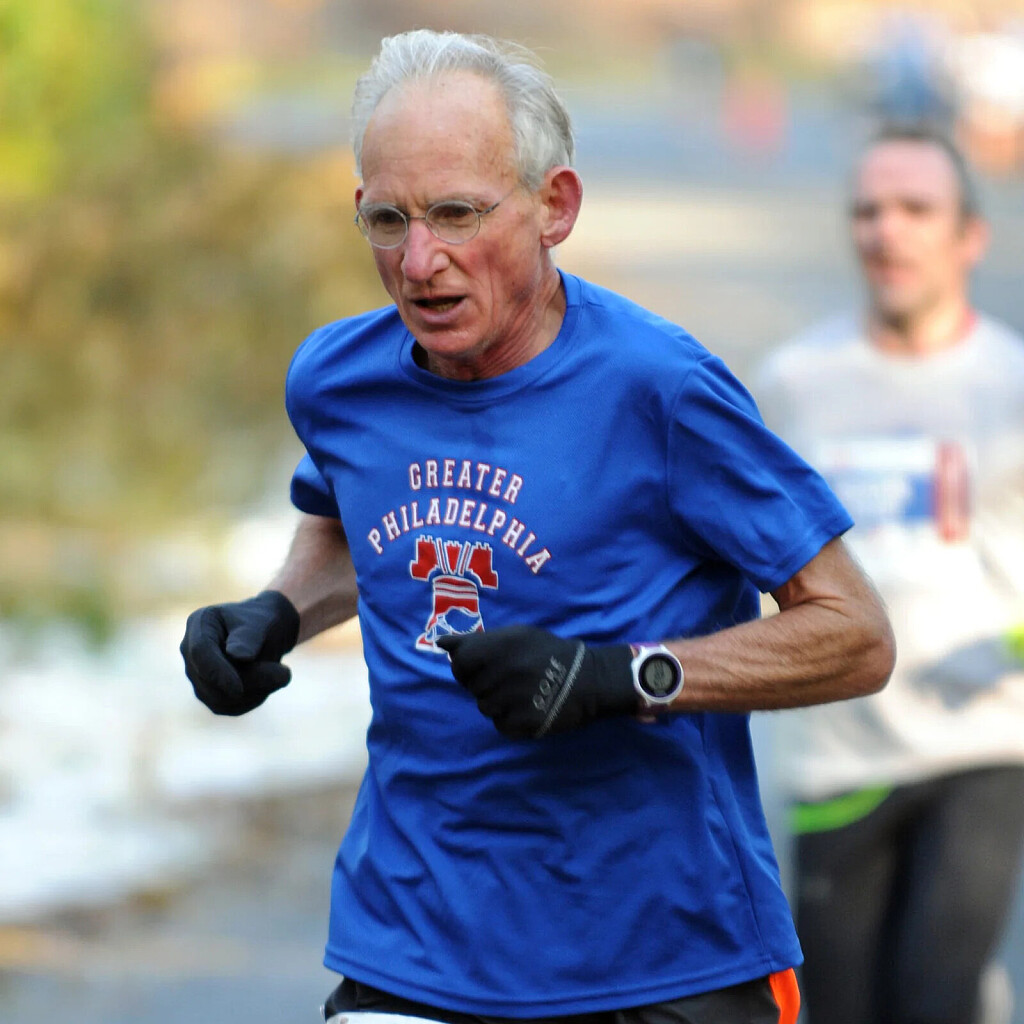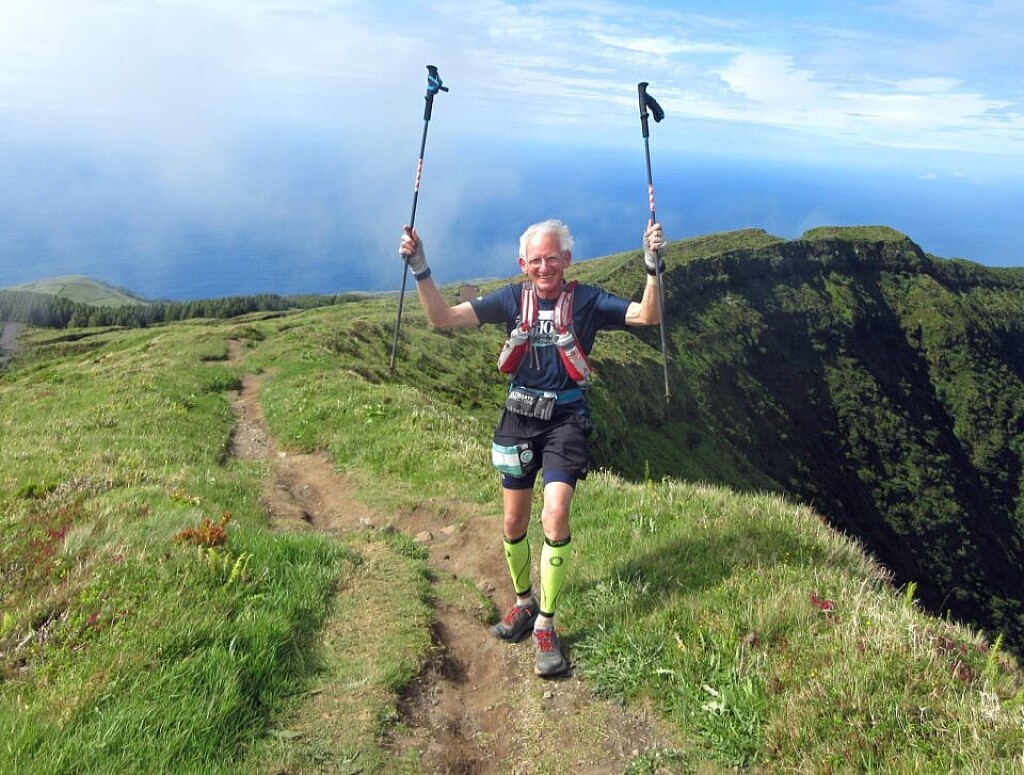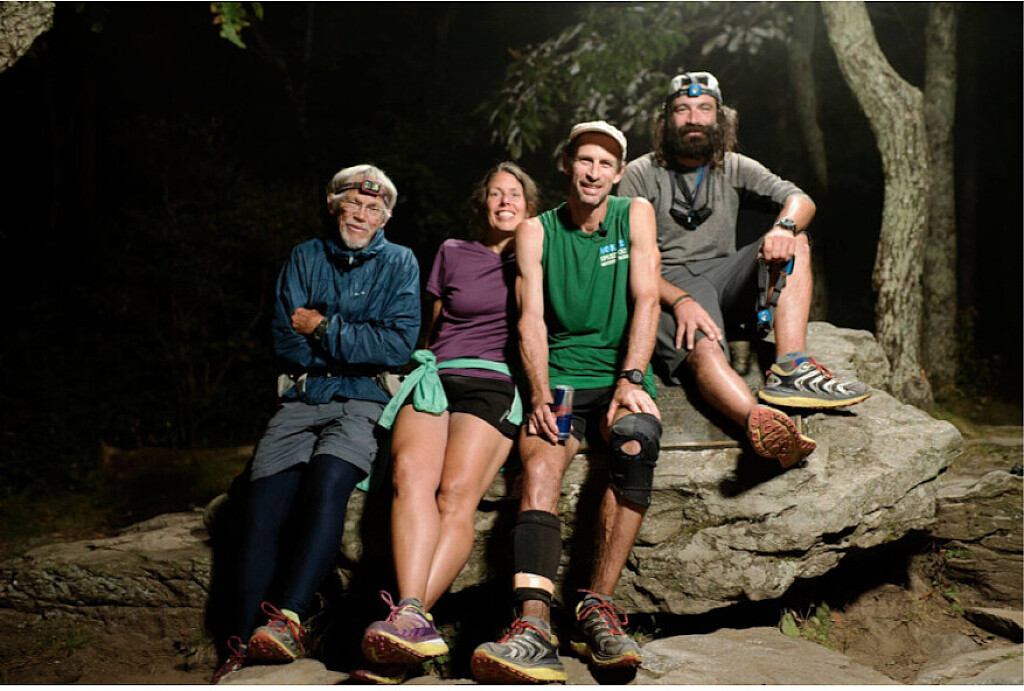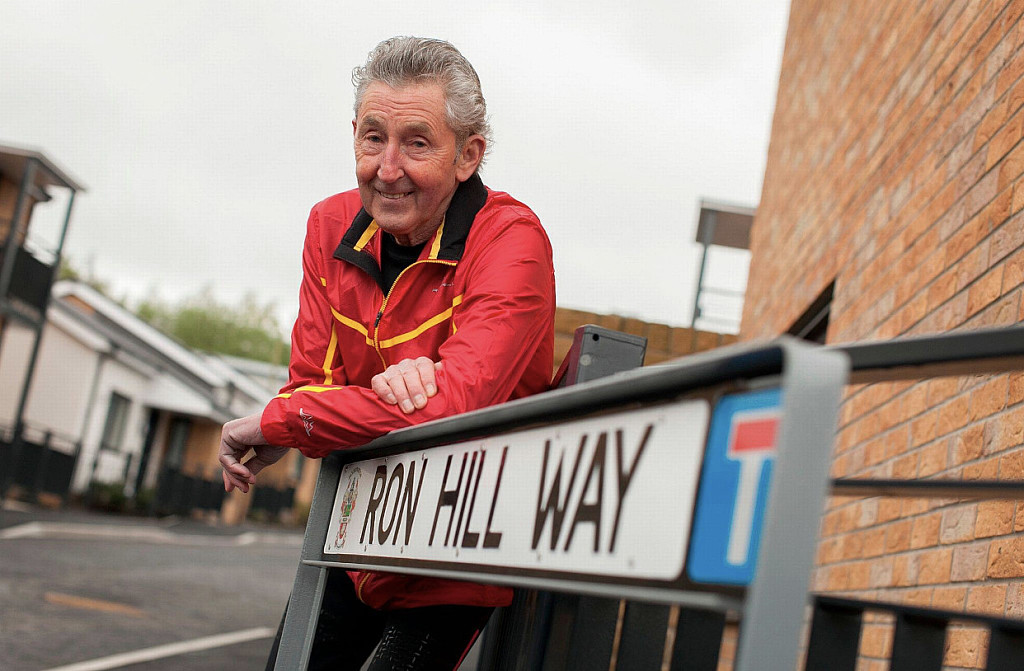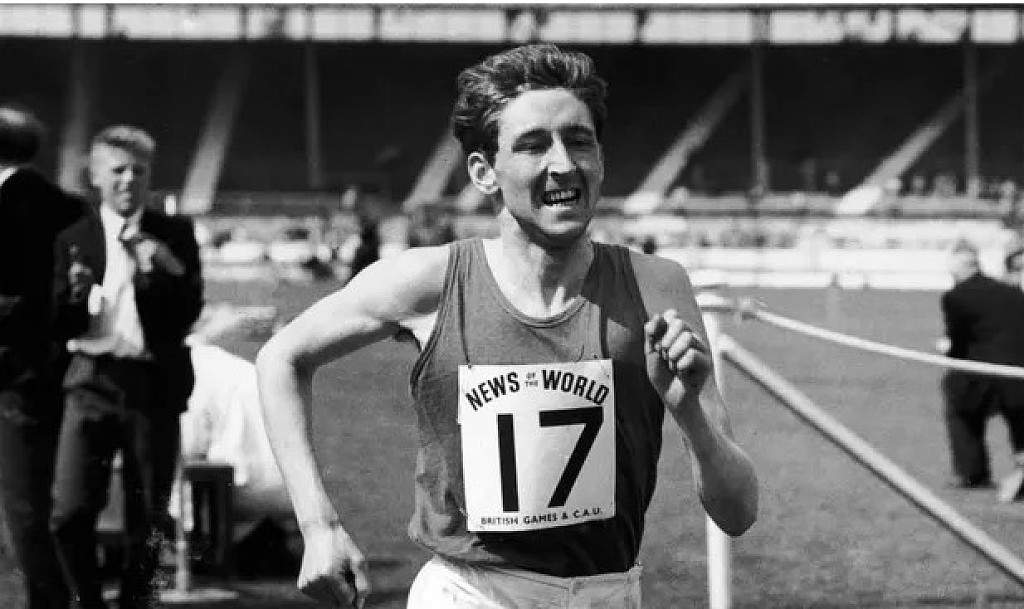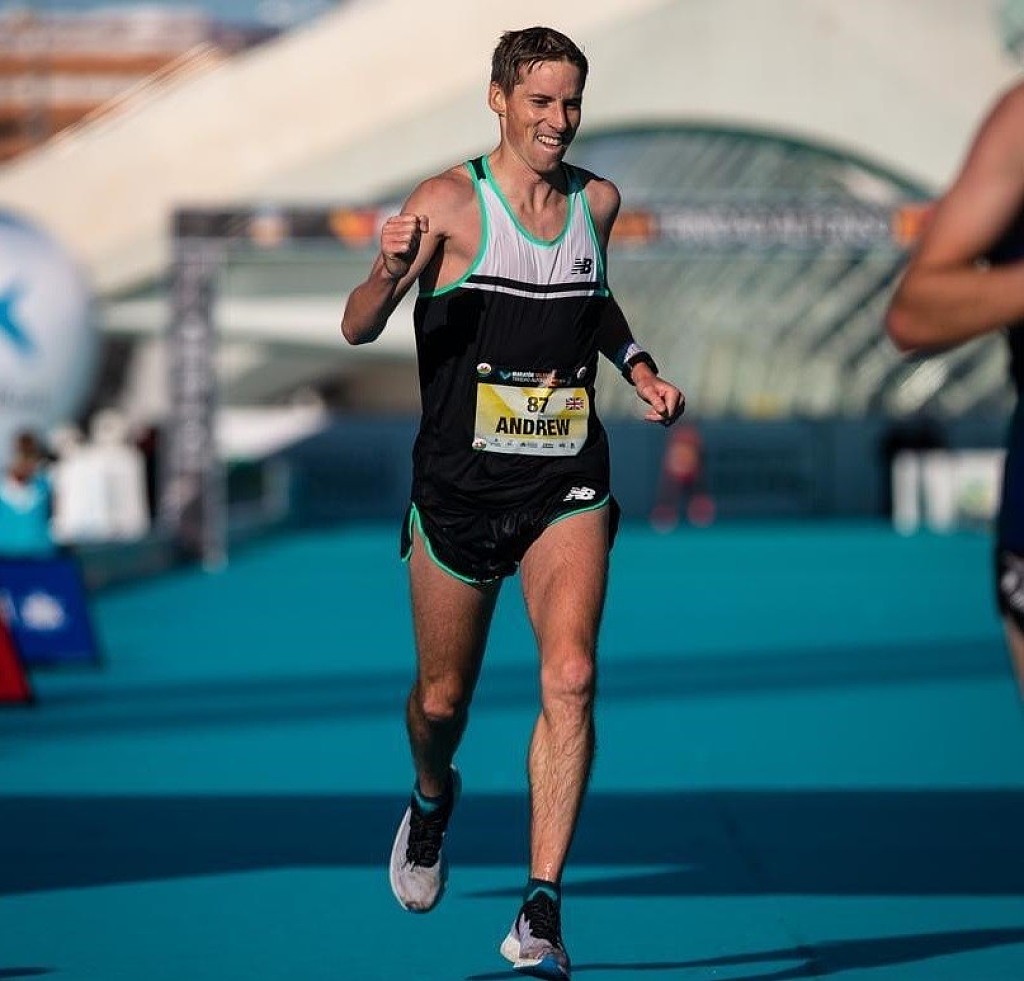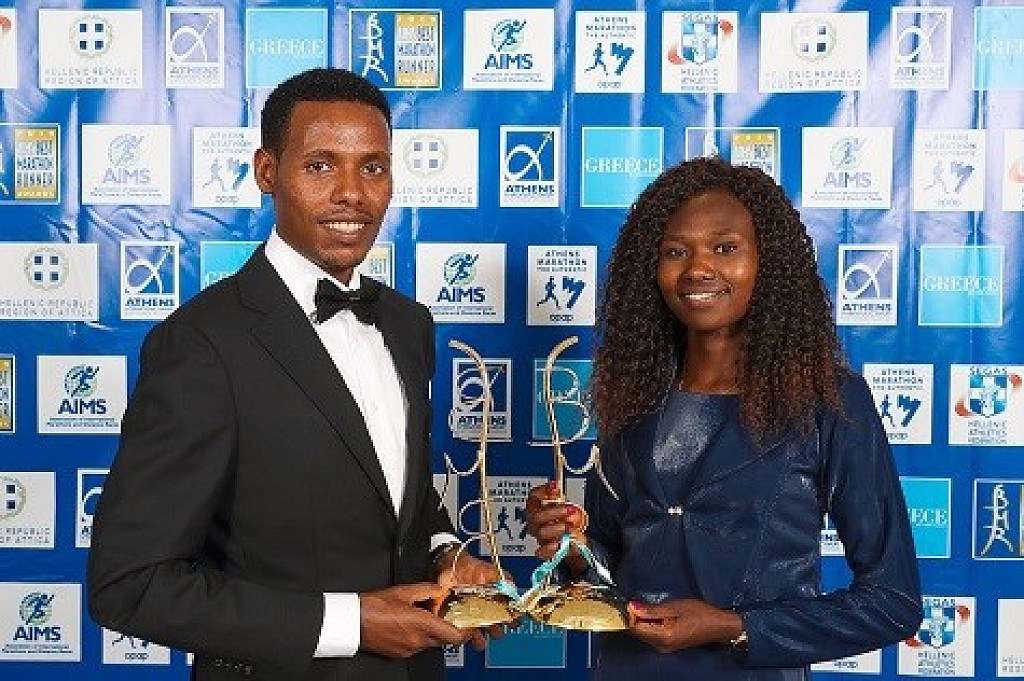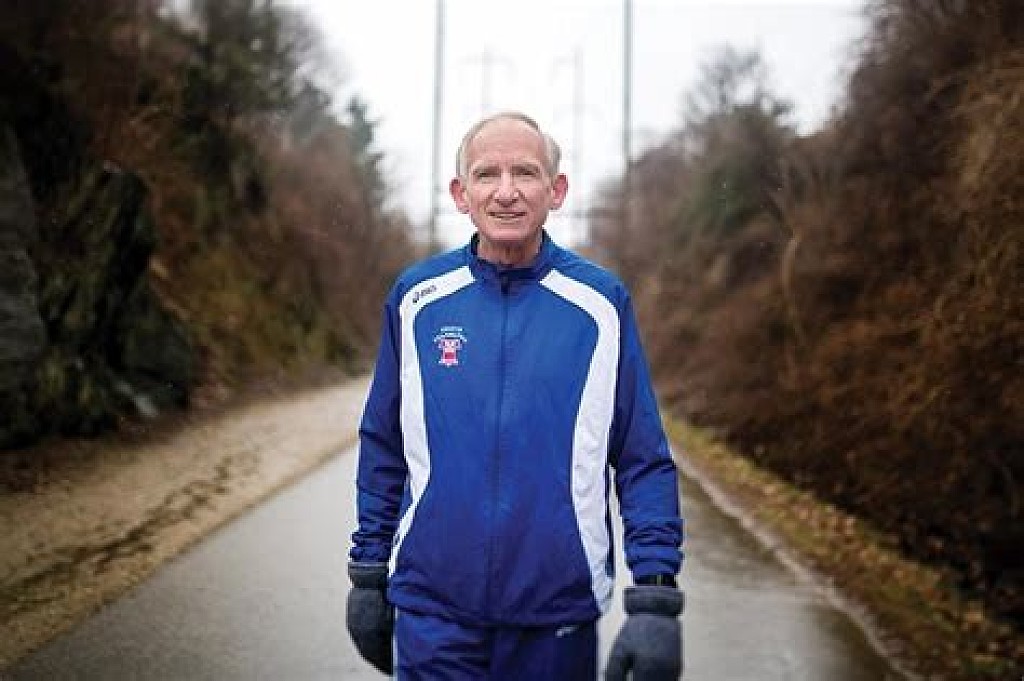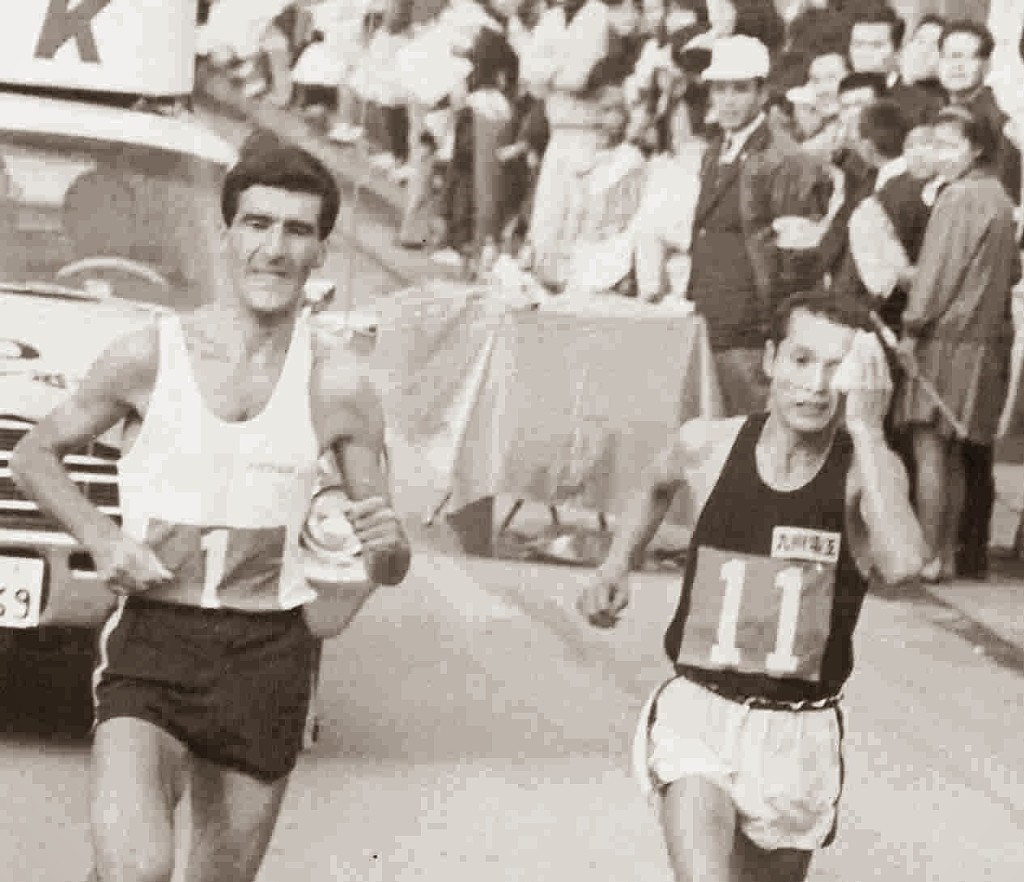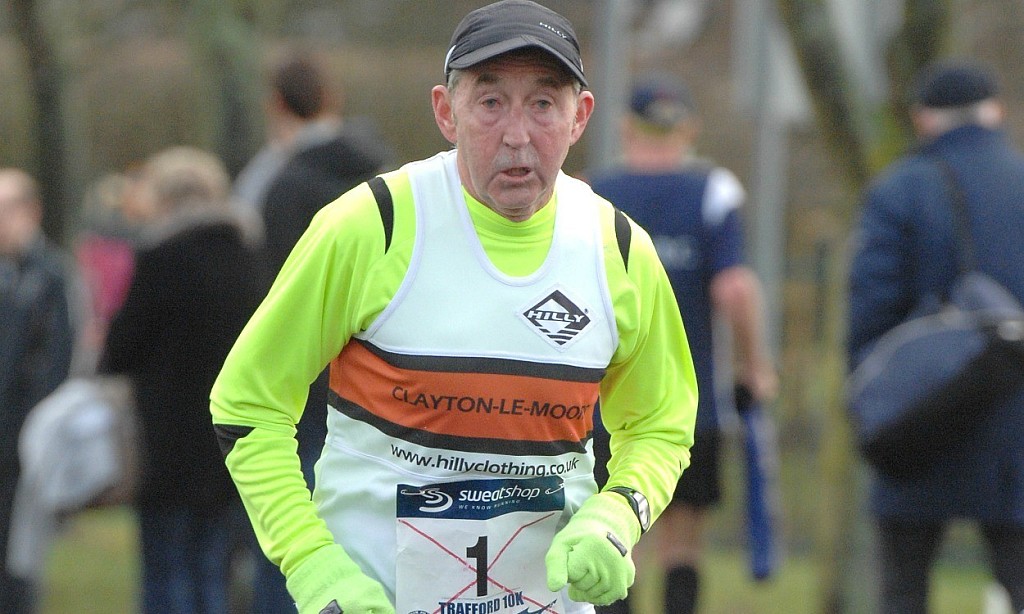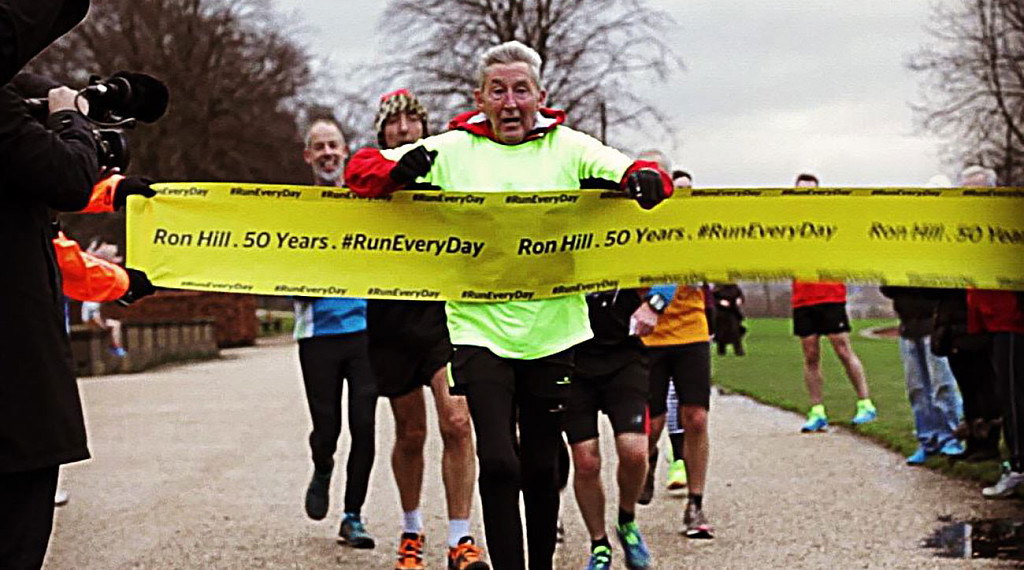Running News Daily
Running News Daily is edited by Bob Anderson. Send your news items to bob@mybestruns.com Advertising opportunities available. Train the Kenyan Way at KATA Kenya and Portugal owned and operated by Bob Anderson. Be sure to catch our movie A Long Run the movie KATA Running Camps and KATA Potato Farms - 31 now open in Kenya! https://kata.ke/
Index to Daily Posts · Sign Up For Updates · Run The World Feed
Articles tagged #Ron Hill
Today's Running News
Eric Giacoletto: The Curator Preserving the Soul of Track and Field
In the fast-moving world of social media, few people are doing more to preserve the rich history of athletics than Eric Giacoletto. From his home in Albertville, France, Eric has become one of the most passionate archivists of the sport—sharing rare photos, insightful commentary, and forgotten moments that continue to inspire athletes and fans across the globe.
Though not a former elite runner himself, Eric’s knowledge runs deep, and his posts serve as daily reminders of what makes our sport timeless. He documents both legends and lesser-known heroes, giving context, names, and reverence to each moment he shares. His work has captured the attention of many—including My Best Runs founder Bob Anderson.
“What Eric is doing is important,” says Bob. “He’s preserving history—moments and athletes that might otherwise be forgotten. His posts are reminders of the beauty, pain, and glory of running.”
Just this past week, Eric posted dozens of compelling images from the golden eras of track and field. From that treasure trove, Bob Anderson selected eight photos he found particularly inspiring. Each tells a story—of courage, character, and the timeless spirit of competition.
Here are the eight photos Bob selected from Eric’s posts this past week:
Photo 1
Jim Ryun and Peter Snell – A Finish for the Ages
Two legends of the mile—Jim Ryun of Wichita and New Zealand’s Peter Snell—captured in one of the most dramatic finishes in middle-distance history. Ryun’s expression of anguish and Snell’s graceful stride speak volumes about what it takes to be world-class. An image that defines grit, shared by Eric earlier this week.
Photo 2
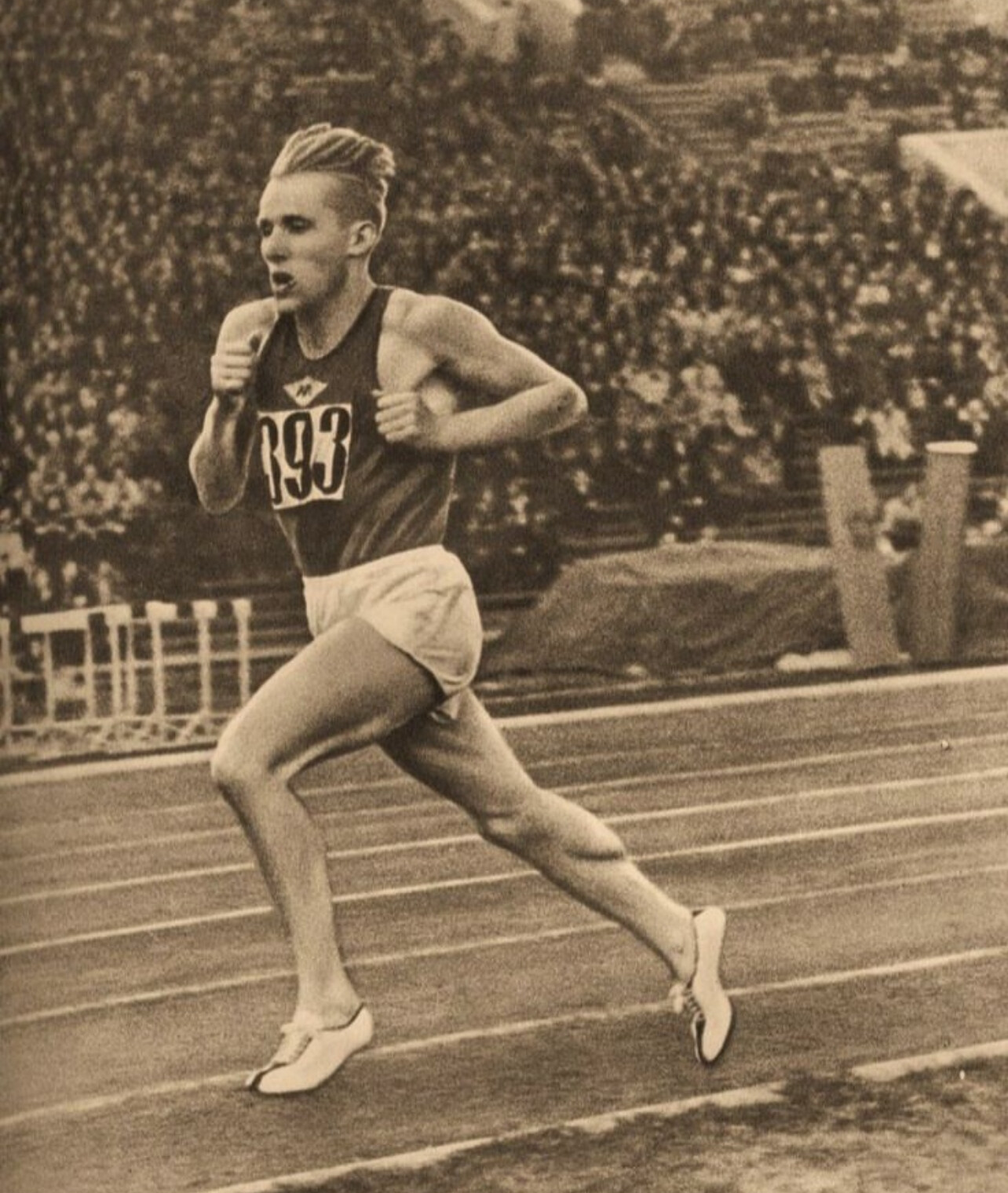
Vladimir Kuts – Soviet Powerhouse in Full Flight
Sprinting down the track with trademark aggression, Vladimir Kuts dominated the 1956 Olympics in Melbourne, winning both the 5,000m and 10,000m. Eric’s photo selection highlights Kuts’ unmistakable form and ferocity—a reminder of Eastern Bloc distance dominance during the Cold War era.
Photo 3
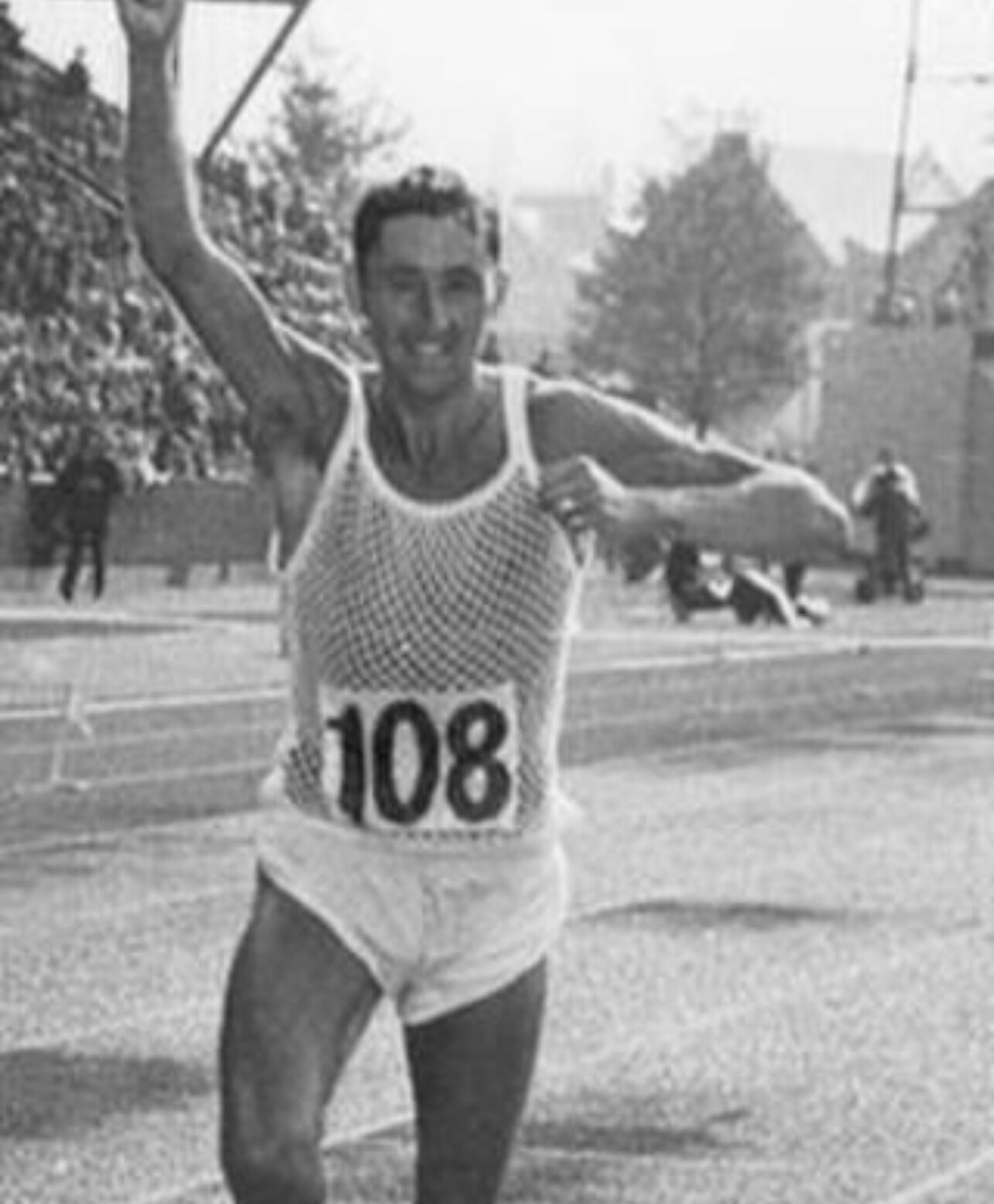
Ron Hill – 1970 Commonwealth Games, Edinburgh
Ron Hill, the pioneering English marathoner, crosses the line in his signature mesh singlet. By 2014, he had logged 159,106 lifetime miles—running at least one mile every day for 50 years. A legendary streak by a man who redefined commitment to the sport.
Photo 4
Steve Prefontaine in His Element
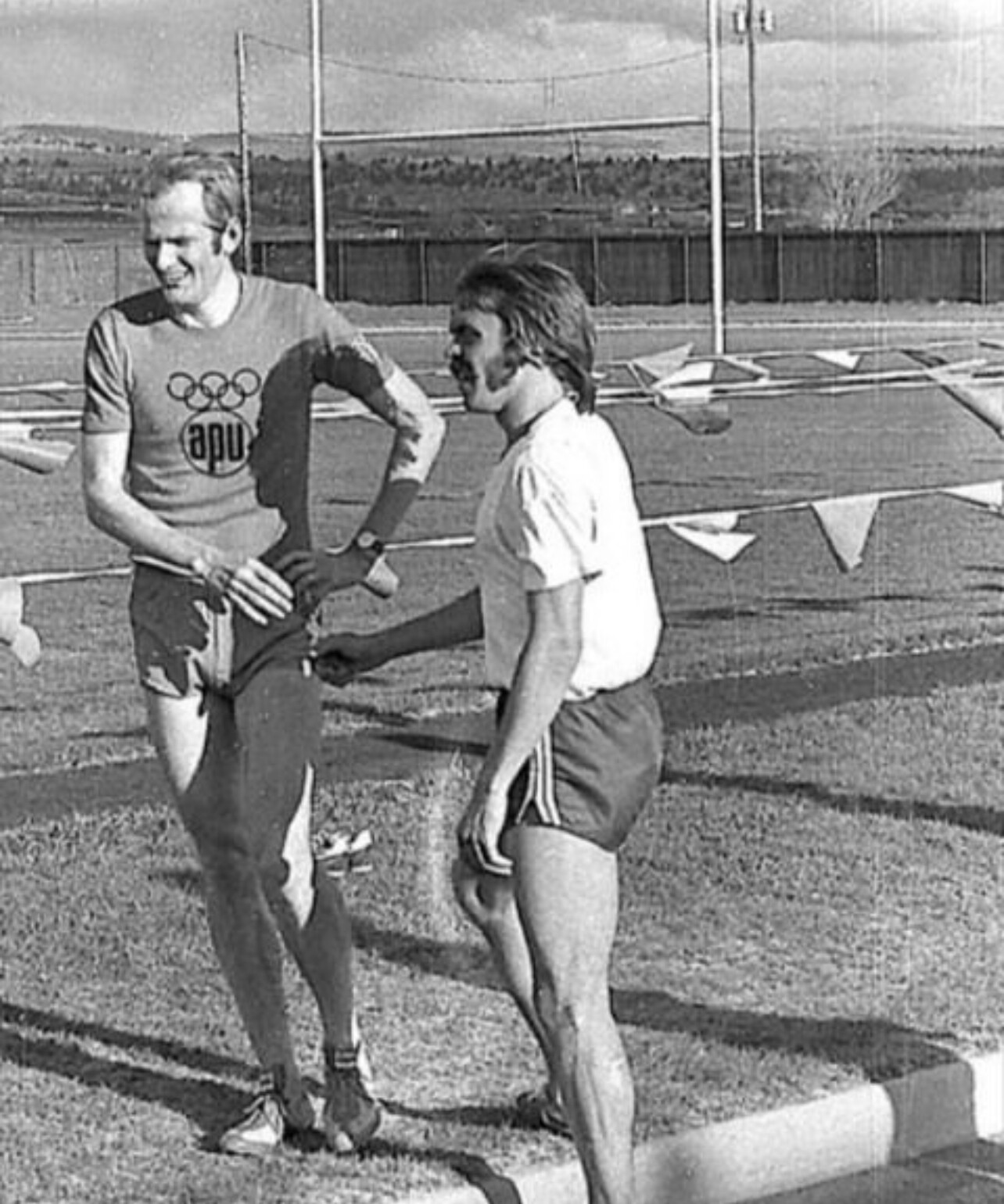
A candid photo of “Pre” during a training session, captured in conversation and camaraderie. Prefontaine’s fearless front-running style and outspoken personality made him a symbol of competitive fire. This relaxed moment shows the human side of a distance icon.
Photo 5
Herb Elliott – Training on the Dunes of Portsea
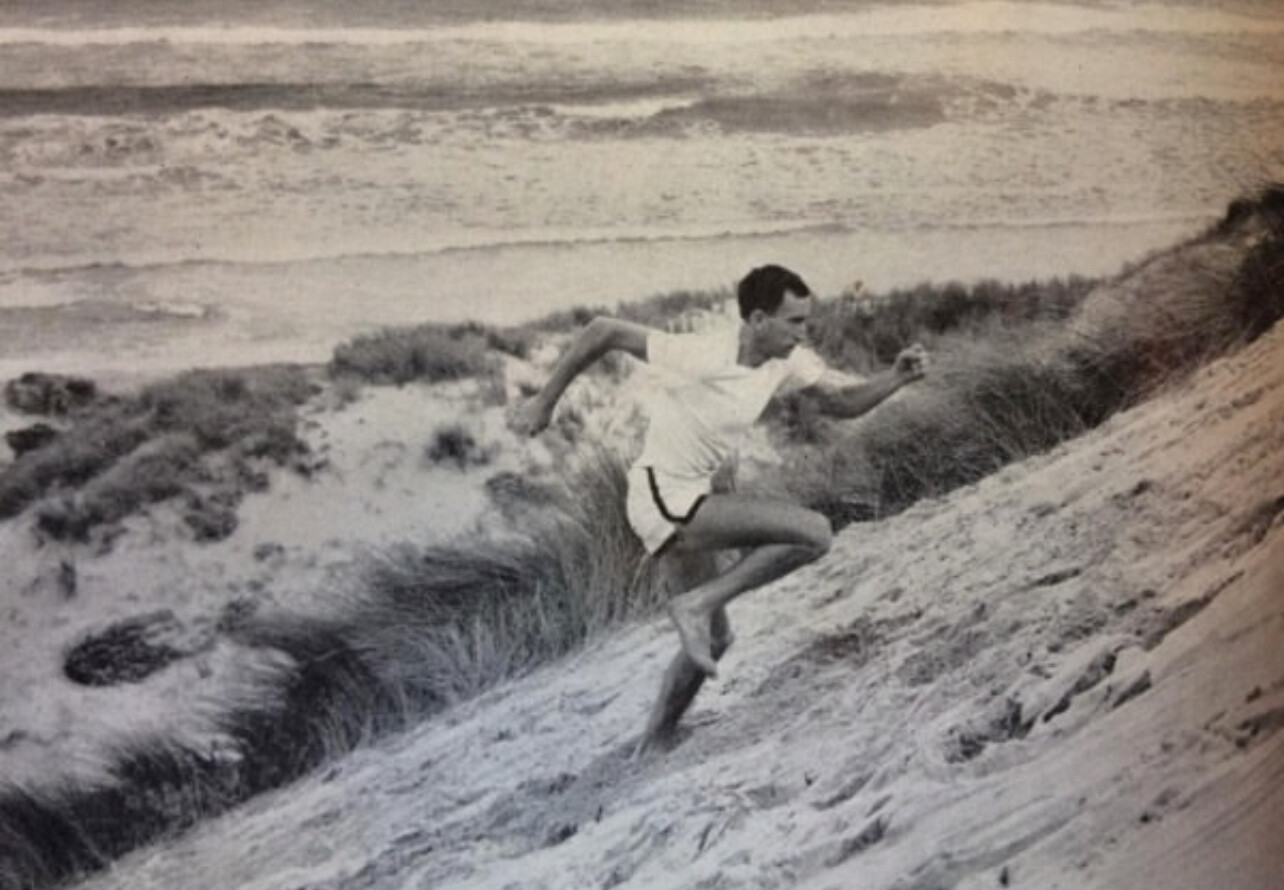
A powerful shot of Australian great Herb Elliott charging barefoot up the coastal sand dunes, guided by coach Percy Cerutty’s naturalist philosophy. Elliott never lost a 1500m or mile race in his career, and this photo shows the raw work behind that undefeated record.
Photo 6
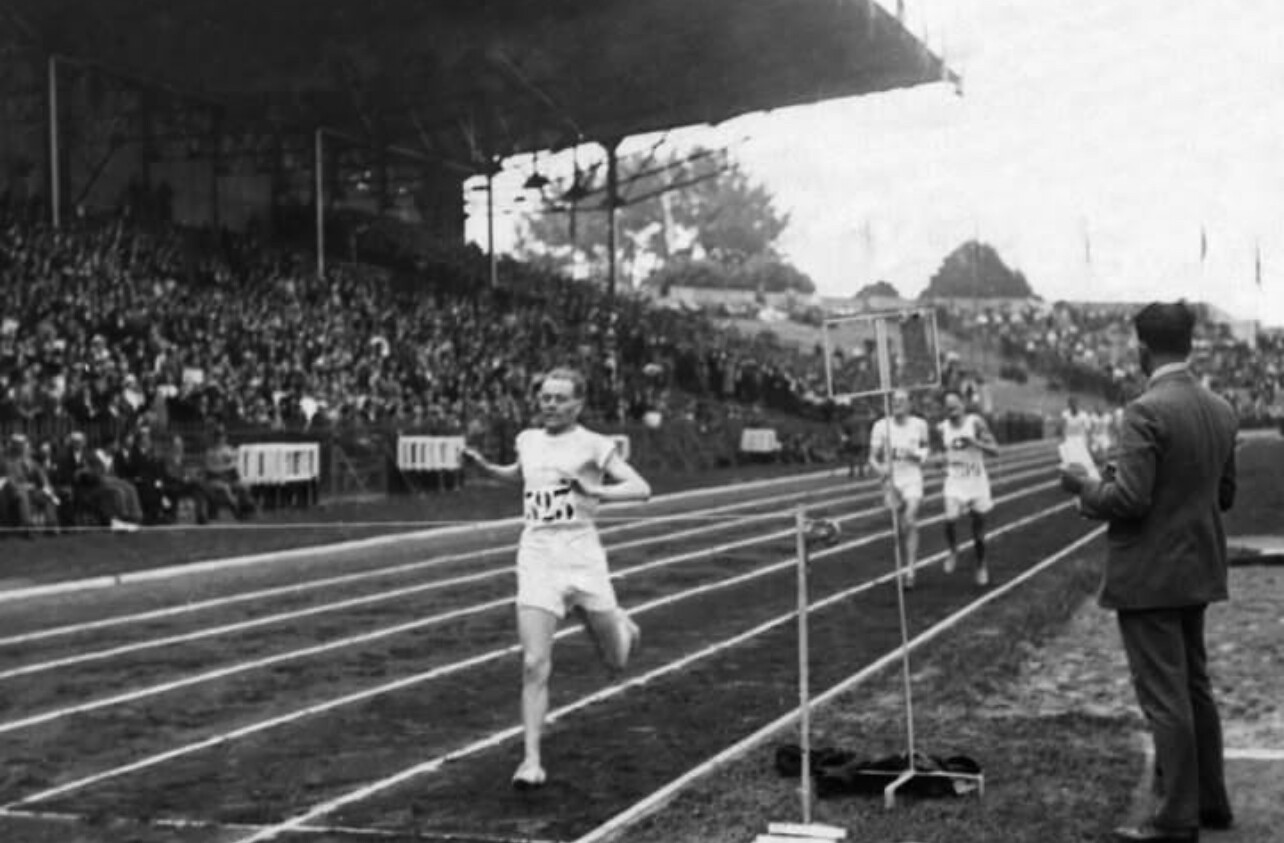
Paavo Nurmi – Double Gold in One Afternoon
Paris, July 10, 1924: Paavo Nurmi wins the 1500m, then returns just hours later to take gold again in the 5000m. This photo shows him well ahead of the field, delivering one of the most jaw-dropping performances in Olympic distance running history.
Photo 7
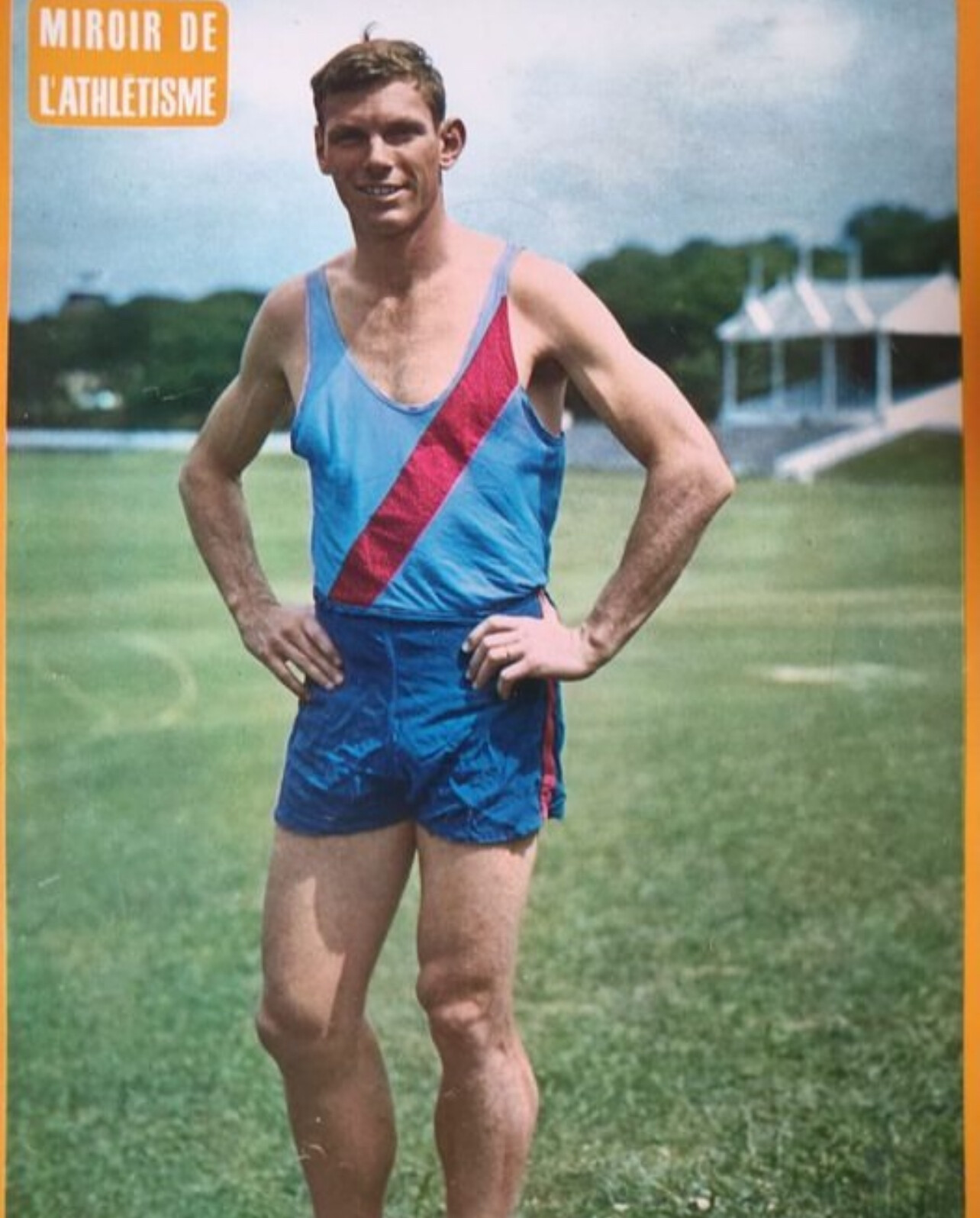
Peter Snell – Power and Poise in Color
A rare color image of New Zealand’s Peter Snell, one of the greatest middle-distance runners of all time. Winner of three Olympic gold medals, Snell combined strength with speed in a way few ever have. Eric’s post brings his iconic stature to life in full color.
Photo 8
Bill Rodgers – Boston Breakaway, 1975
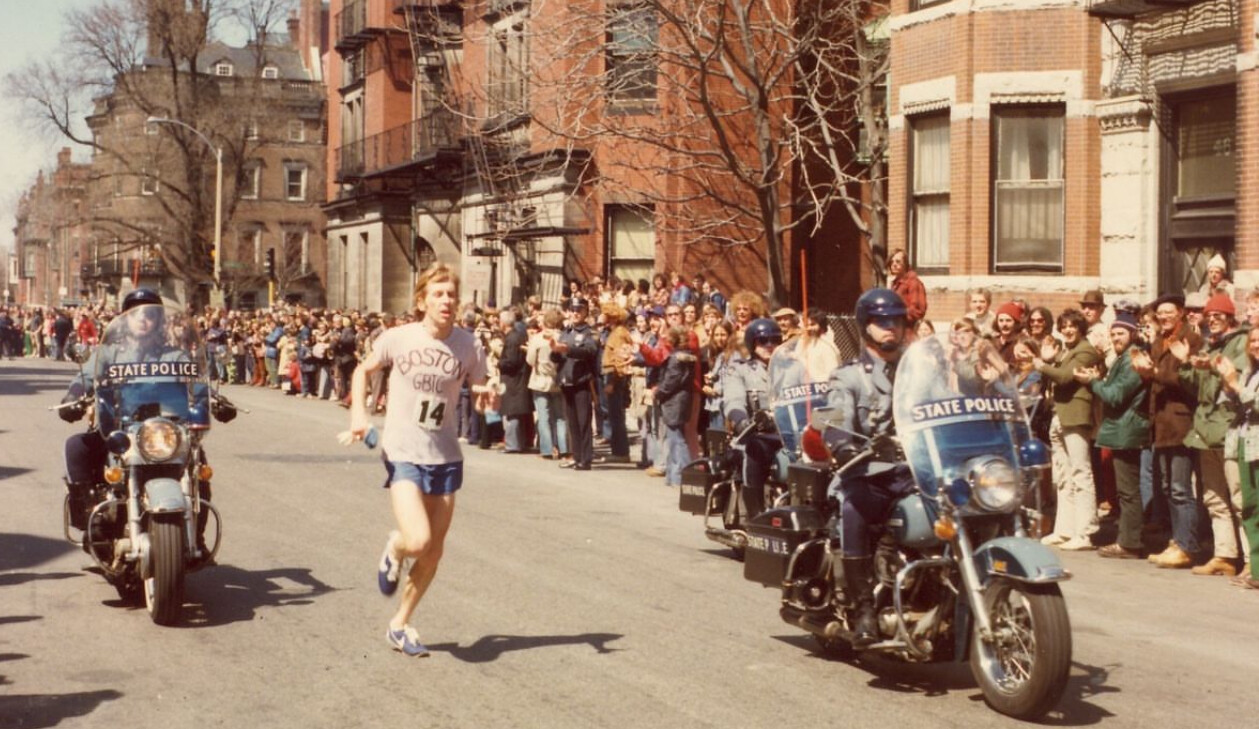
Captured mid-stride during his victory at the 1975 Boston Marathon, Bill Rodgers pulls away under the escort of state police motorcycles. His win that year—2:09:55—was part of a dominant streak that made him a U.S. marathon legend. A city, and a sport, in full celebration.
Honoring the Archivist
Eric’s posts on Facebook and Instagram (@ericgiacoletto) continue to spark meaningful conversations among athletes, historians, and lifelong fans. Whether he’s unearthing a forgotten race photo or celebrating an athlete’s legacy, Eric is doing more than documenting—he’s inspiring.
If you enjoyed this feature, and with Eric’s permission, we’d love to post more regularly here at My Best Runs. Let us know what you think—we’re always looking to spotlight the people and moments that keep the spirit of our sport alive.
by Boris Baron and Bob Anderson
Login to leave a comment
The Evolution of the Half Marathon From Breaking One Hour to a New Era
“It was not that many years ago that breaking an hour for the half marathon was an amazing feat,” says My Best Runs editor Bob Anderson. “And today, we saw that record dip under 57 minutes. That’s running 4:19 mile pace for 13.1 miles. Wow!”
The half marathon, a 21.0975-kilometer (13.1-mile) race, has long been a benchmark of endurance and speed. For decades, breaking one hour in the event was considered an extraordinary achievement. But as training, technology, and competition have advanced, so have the records. On February 16, 2025, Uganda’s Jacob Kiplimo took the event into a new era, becoming the first person to break 57 minutes with a stunning world record of 56:42 at the eDreams Mitja Marató de Barcelona.
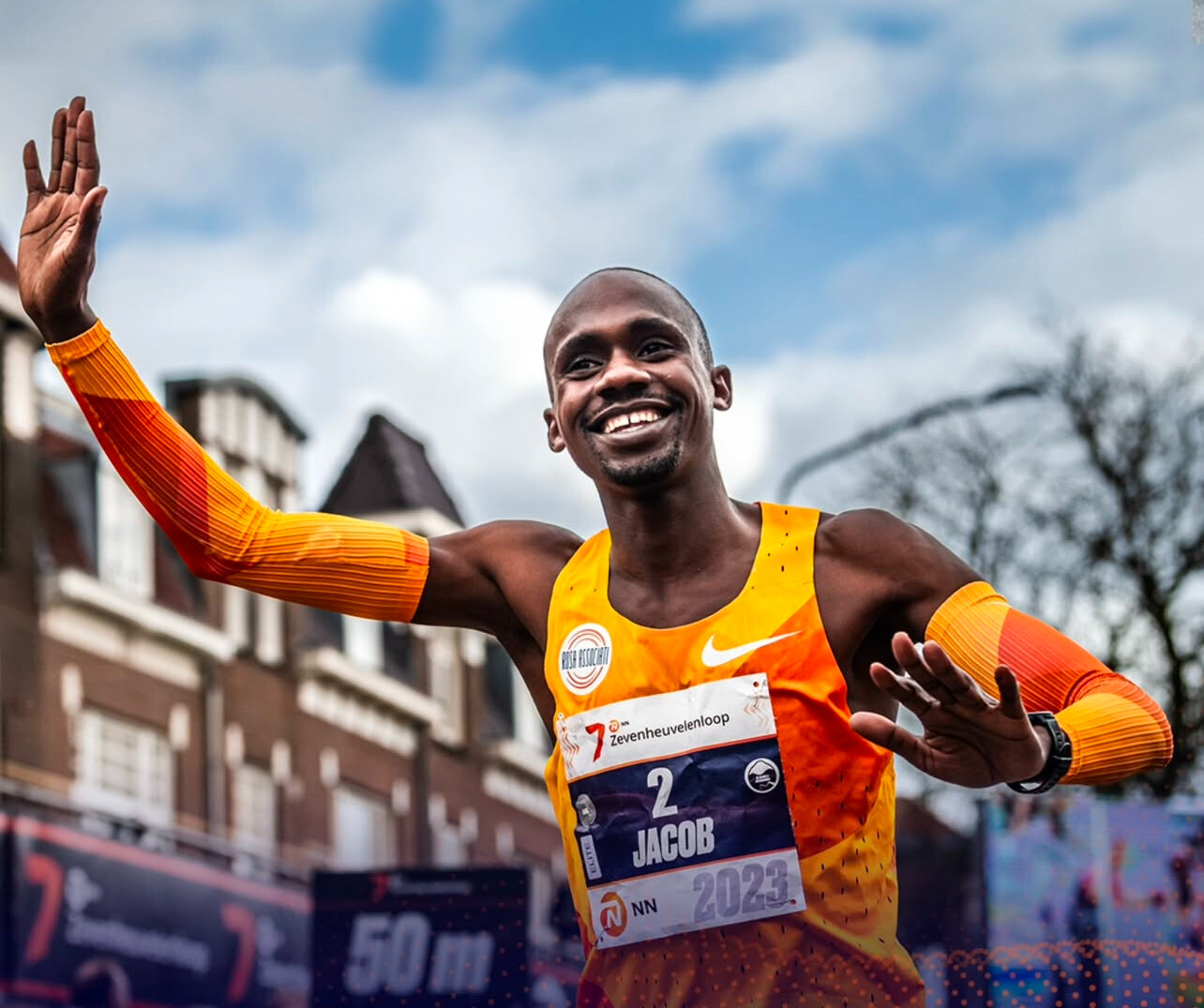
The history of the half marathon
The half marathon has been a competitive event since at least the early 20th century, though it did not gain widespread popularity until later. It emerged as a race distance that was more accessible than the full marathon but still required a balance of endurance and speed. Unlike the marathon, which has been an Olympic event since 1896, the half marathon has never been included in the Games, but it has had its own World Championships since 1992.
With the rise of professional distance running and major city half marathons, the event has grown into one of the most participated-in races worldwide. Many view it as a stepping stone to the full marathon, while others appreciate it as a challenging yet more manageable race.
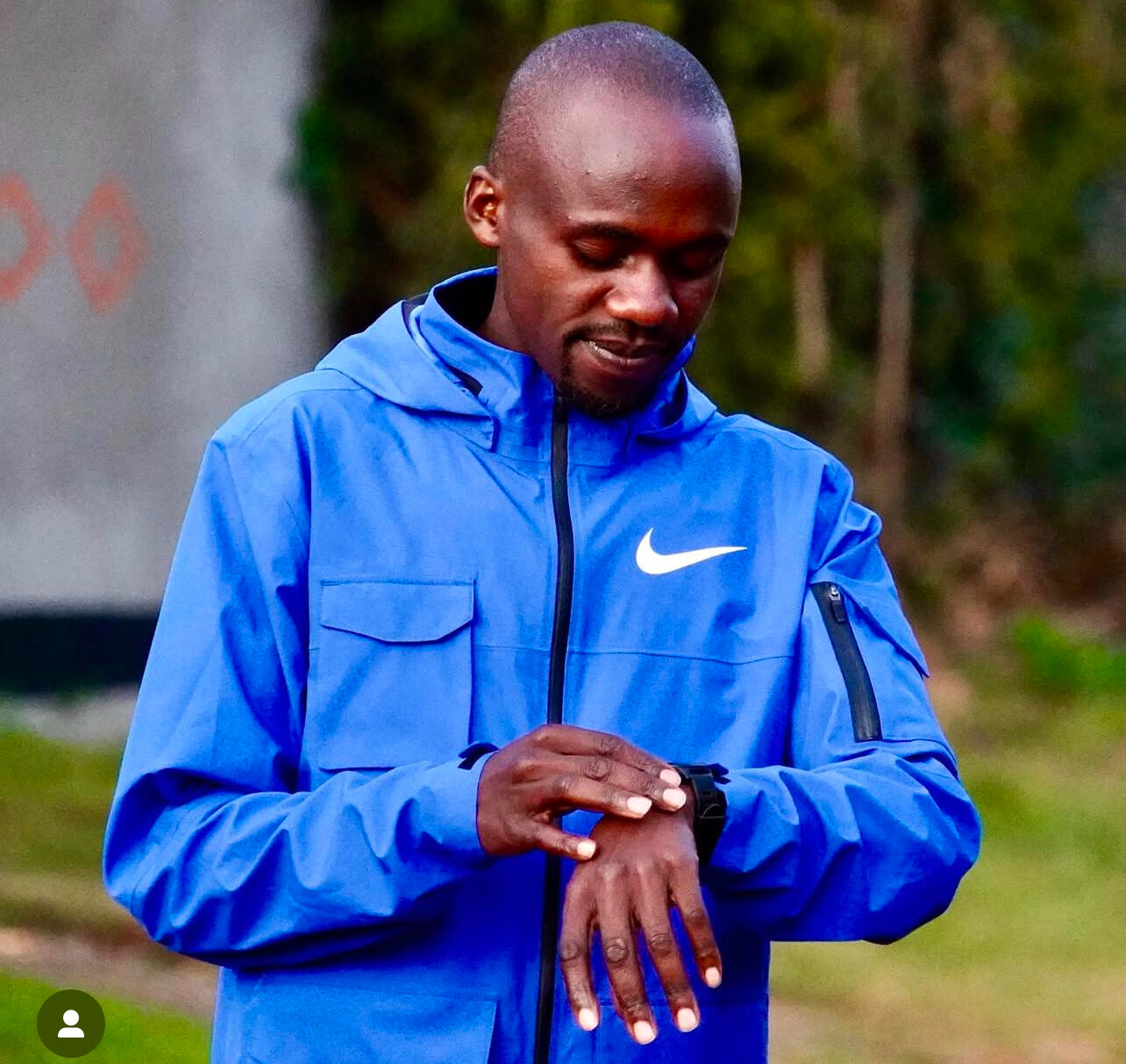
Breaking one hour The milestones
The quest to run a half marathon in under one hour became a defining goal for elite male distance runners. While marathon times had been steadily improving throughout the 20th century, the half marathon saw a more gradual progression.
1960: Australian runner Dave Power ran an unofficial best of 1:01:44.
1974: Ron Hill of Great Britain set a recognized world best of 1:02:22.
1978: Italy’s Marcello Fiasconaro improved the mark to 1:01:49.
1985: Steve Jones of Great Britain ran 1:01:14, bringing the record closer to the one-hour barrier.
1993: Moses Tanui of Kenya became the first man to break one hour, running 59:47.
Once Tanui shattered the one-hour barrier, improvements became more frequent, with Kenyan and Ethiopian athletes dominating the event.
1997: Paul Tergat (Kenya) ran 59:17.
2005: Samuel Wanjiru (Kenya) ran 59:16, then 58:33 in 2007.
2010: Zersenay Tadese (Eritrea) set a long-standing record of 58:23.
2020: Kibiwott Kandie (Kenya) became the first to break 58 minutes, running 57:32.
2021: Jacob Kiplimo (Uganda) set a new record at 57:31.
2024: Yomif Kejelcha (Ethiopia) improved it to 57:30.
2025: Jacob Kiplimo rewrote history with 56:42.
The women's half marathon world record
On the women’s side, the world record has seen significant improvements as well. Ethiopia’s Letesenbet Gidey currently holds the record, running 1:02:52 on October 24, 2021, at the Valencia Half Marathon. This was a massive leap forward, making her the first woman to break 64 minutes.
Previous records include:
1982: Joan Benoit Samuelson (USA) ran 1:08:34.
2001: Elana Meyer (South Africa) became the first woman to break 67 minutes, running 1:06:44.
2007: Lornah Kiplagat (Netherlands) set a world record of 1:06:25.
2017: Joyciline Jepkosgei (Kenya) became the first woman under 65 minutes, running 1:04:52.
2021: Letesenbet Gidey shattered expectations with 1:02:52.
A new era for the half marathon
With Kiplimo’s record-breaking 56:41, the half marathon has entered uncharted territory. His ability to maintain a 4:19 per mile pace for 13.1 miles is a testament to the evolution of the sport. Advances in training methods, course selection, pacing strategies, and shoe technology have all contributed to these record-breaking performances.
The question now is what comes next. Will someone push the limits even further and run under 56 minutes? Will Kiplimo’s record stand for years, or will it spark another round of breakthroughs?
For now, all eyes turn to Kiplimo’s next challenge: his marathon debut at the London Marathon on April 27, 2025. If his half marathon success is any indication, the world may soon see him make history over 26.2 miles as well.
One thing is certain—the evolution of the half marathon is far from over, and the best may still be yet to come.
by Boris Baron
Login to leave a comment
Four ways to be more consistent in 2024
We all want to take the fast track. When it comes to achieving health, well-being and peak performance, the allure of quick fixes and heroic efforts is undeniable. But in a world where instant results are often glorified, embracing a consistent and sustainable journey can be the key to long-term success. Brad Stulberg, performance coach and author of Master of Change: How to Excel When Everything Is Changing – Including You, outlines a few essential practices to follow to rack up consistent repeated gains in 2024, and beyond.
1.- Avoid pushing to extremes

“If you go for broke you often end up broken. If you swing for home runs you often end up striking out. But if you just put the ball in play—over and over again—good things tend to happen,“ Stulberg shares on his website. There’s a common misconception that pushing yourself to the extreme is the only way to make significant progress. However, as seen in the story of the late Ron Hill, who ran every day for more than 52 years, sustainability is the true secret to lasting success. Hill’s consistency, rather than sporadic extreme efforts, allowed him to achieve an unparalleled feat. While social media often showcases wild workouts, it’s crucial to recognize that sustained efforts (even if they aren’t flashy) yield better results in the long run.
2.- Progress is not linear

In a world obsessed with visible progress, many individuals find themselves burning out not just after setbacks but also following significant achievements. The trap lies in expecting continuous visible growth, especially when aiming for marginal gains becomes challenging. The key to longevity is reframing your work as an ongoing practice, measuring the overall process and allowing progress to naturally unfold as a result of consistent commitment. “The goal has got to shift from visible progress to sustained and wise effort,” Stulberg says.
Progress is not always straightforward, and even though you may notice initial rapid improvements, the path becomes more incremental over time. Understand and appreciate this non-linear trajectory. Patience and enjoyment of the process are key to allowing progress to unfold in a unique, non-linear way.
3.- Build your foundation
“There is no such thing as an overnight breakthrough,” says Stulberg. Research suggests that hot streaks, or periods of exceptional performance, are unpredictable and often emerge from a foundation of consistent work. Building a strong, sturdy base is key to growth and strong performance, and what appears to be a sudden breakthrough is built on a history of incremental improvements. Progress is a gradual process that requires dedication, effort and time.
4.- Show restraint
Restraint can be a powerful tool as you pursue consistent progress. Knowing when to stop, even when you feel good, is the secret to maintaining a rhythm over an extended period. Sustainable progress requires a balance between giving your best on any given day and saving energy for the long haul. Recognize the difference between short-term intensity and the long-term commitment needed for sustained success. “Sustainable progress, in just about every and any endeavor, requires stopping one rep short, at least on most days,” says Stulberg.
by Keeley Milne
Login to leave a comment
Gene Dykes, 75, sets seven U.S. masters records
Accomplished ultrarunner Gene Dykes, 75, looks to have set no fewer than seven U.S. masters records at a 12-hour race in his home state of Pennsylvania over the weekend, surprising himself as he pushed past health issues to pass the 100-km mark with 400 metres to spare.
The records, which have yet to be ratified by USA Track and Field, include the fastest outdoor track times in the U.S. men’s 75-79 category for 25K (2:48:33), 30K (3:24:08), 50K (5:40:39), 20 miles (3:41:28), 50 miles (9:25:10) and 100K (11:56:26), and the longest distance run in that category for a 12-hour period (100,481 metres). Dykes set the records during his 12-hour overnight effort at the Dawn to Dusk to Dawn Track Ultras in Sharon Hill, Pa., on May 13-14.
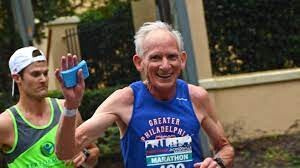
The 100K record was the most surprising to Dykes, who has broken multiple records since he took up competitive racing in his 60s. “I didn’t think I had a prayer,” he says. “It’s hard running 100K at my age. I only made it by four minutes.”
Making his latest effort even more remarkable was the fact he was battling a host of health issues on race night.
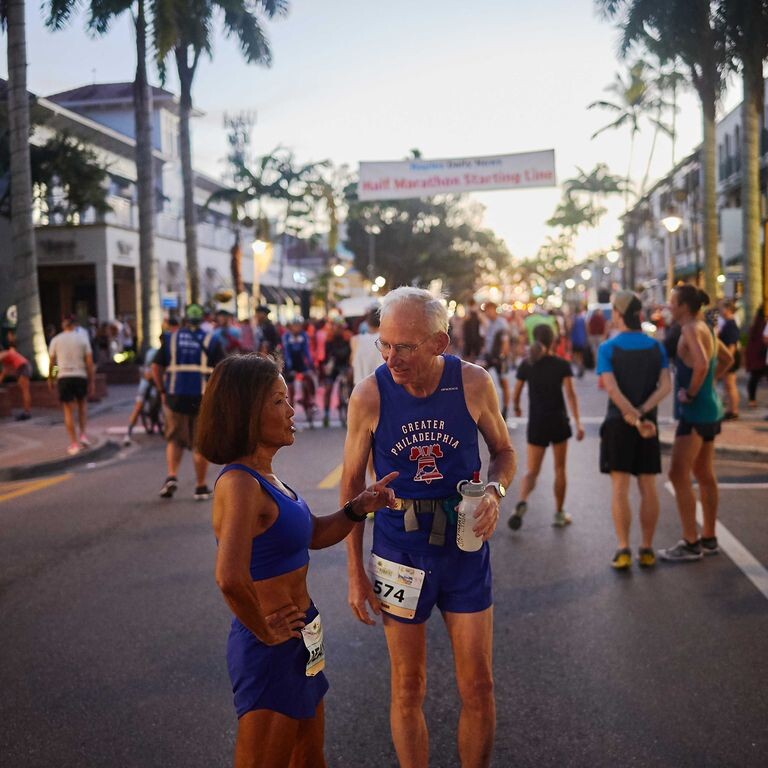
“I told people I’m battling the three C’s out here,” says Dykes. “Two weeks ago I contracted COVID, and I also had cold symptoms going into the race. Six months before I had been diagnosed with blood cancer, and that’s been really hurting my fast pace, but I have this theory that it doesn’t affect ultra paces and that seems to have really been borne out here. The only symptom I have is that I can’t breathe hard enough when I run fast, but when you’re running 12 hours, you’re never running hard. I was really happy to be able to get through 12 hours with all those health problems.”
Dykes says although he has been sitting out races recently due to health challanges, it was important for him to step up to the starting line over the weekend, as he prepares to make history next month as the oldest finisher of the 100-mile Western States Endurance Run.
“I kind of had to take a chance, because the really big race is next month,” says Dykes. “That’s a big deal. I’ve got a sponsor, and everybody’s expecting me to become the oldest-ever finisher there. So I thought, If I can’t run for 12 hours, how am I going to run for 30 hours?”
The self-described “ultra geezer” says his race on the weekend—his longest since receiving his cancer diagnosis—is a good confidence booster ahead of Western States.
“When you haven’t done something that like in a while, doubts creep in. A lot of things could have gone wrong. I could have got nauseated, I could have bonked, running out of glycogen, in which case you’re going to slow down no matter how much you want to run faster. None of those things happened. You get in this strange mindset where you just kind of dial out misery and keep on going.”
Reflecting on his latest effort with humility, Dykes says many of the U.S. masters records he set on the weekend were “low-hanging fruit,” saying he could “think of a half a dozen 75-year-olds out there” who could have set records in the 25- and 30-km distances “if they had the mind to.”
He adds, however, that he was proud to have hit the 100-km distance under the wire. “At 50 km I asked my crew to find out the new pace I would have to run over the next 50 km for the 100 km. I had to pick up from my comfortable pace. I thought I don’t care if I have no chance—I’m going to run the pace I need and keep doing it until I can’t do it anymore.’ Somehow, for seven hours I managed to keep pushing myself right up to the ending bell.”
Dykes is now looking forward to bringing that same determination to Western States on June 24-25. “It’ll be fun trying,” he says. “There are just so many ways to enjoy running. I’m really fortunate.”
by Paul Baswick
Login to leave a comment
Western States 100
The Western States ® 100-Mile Endurance Run is the world’s oldest and most prestigious 100-mile trail race. Starting in Squaw Valley, California near the site of the 1960 Winter Olympics and ending 100.2 miles later in Auburn, California, Western States, in the decades since its inception in 1974, has come to represent one of the ultimate endurance tests in the...
more...Gene Dykes hopes to become oldest Western States finisher
Gene Dykes, the record-setting 75-year-old ultrarunner from Philadelphia, will hit the trail this summer in a bid to become the oldest finisher in the history of the 100-mile Western States Endurance Run.
This year’s event, which takes place June 24-25 in Auburn, Calif., will mark the race’s 49th year.
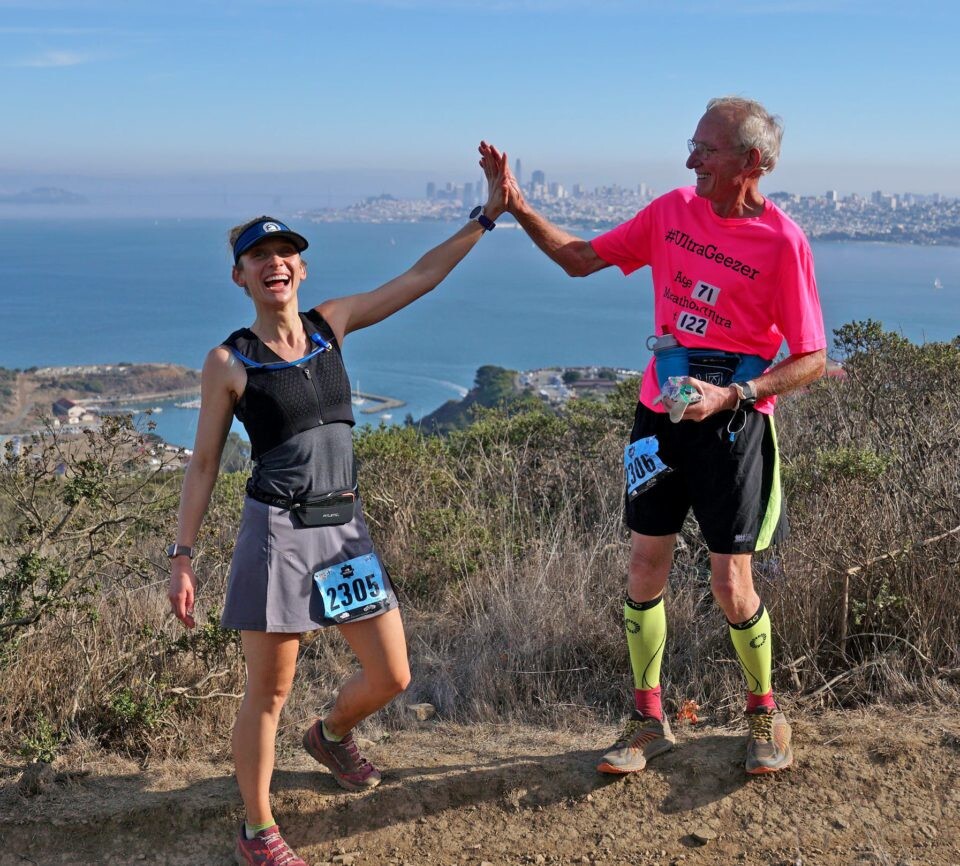
The current oldest finisher is Nick Bassett of Cheyenne, Wy., who finished the 2018 race in 29:09. (The cutoff for all finishers is 30 hours.) Bassett was 73.
A self-proclaimed “ultra geezer,” Dykes started competing in races when he was in his 60s and has since broken multiple records for his age group. In 2021, he broke the M70 50K world record at the USATF national 50K road championships in East Islip, N.Y., crossing the finish line in 3:56:43 and beating the previous record of 4:15:55, set by Germany’s Wilhelm Hofmann in 1997, by nearly 19 minutes. Dykes broke the M70 100-mile and 24-hour track records at the Dawn 2 Dusk 2 Dawn 24-hour ultramarathon in Sharon Hill, Penn., in 2019.
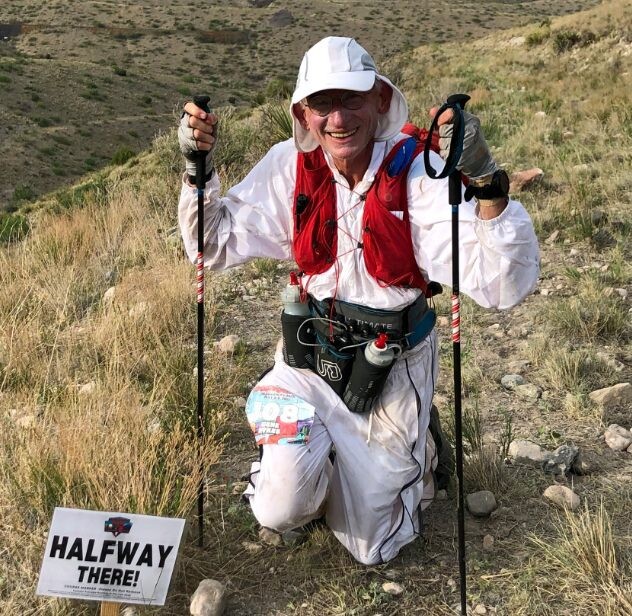
In 2018, Dykes ran his fastest marathon time—2:54:23—at age 70 at the Jacksonville Marathon in Florida. The result would have seen him take the world M70 marathon title from former record holder Ed Whitlock, but Dykes’s final time was not ratified due to the race not being a USATF-sanctioned event.
In total, Dykes has run 157 marathons and ultras since 2006. His daughter Hilary will pace him at this year’s WSER.
Dykes is being sponsored in his latest effort by Calgary-based Stoked Oats. As part of their support, the company has kicked off its Breakfast with Gene series on Instragram and YouTube. The series will feature guests including Vancouver-based WSER female record holder Ellie Greenwood, three-time WSER racer Michael Wardian and race director Craig Thornley.
In 2016, 72-year-old Wally Hesseltine made a valiant and heartbreaking attempt to break the “oldest finisher” record, but missed the 30-hour cutoff by two minutes.
“We are thrilled to be supporting Gene on his journey to WSER,” says series host and Stoked Oats founder Simon Donato. “Running 100 miles is a tall order for professional runners, let alone someone in their 70s. What Gene is trying to accomplish is truly remarkable and we’re looking forward to supporting him every record-setting step of the way.”
Western States, first run in 1974, is the world’s oldest 100-mile trail race and one of the most prestigious. Each June, 369 runners from across the United States and around the world embark from the start line in Olympic Valley, Calif., to tackle a challenging course to the coveted finish line at Placer High School in Auburn.
by Paul Baswick
Login to leave a comment
Western States 100
The Western States ® 100-Mile Endurance Run is the world’s oldest and most prestigious 100-mile trail race. Starting in Squaw Valley, California near the site of the 1960 Winter Olympics and ending 100.2 miles later in Auburn, California, Western States, in the decades since its inception in 1974, has come to represent one of the ultimate endurance tests in the...
more...The craziest active streaks in running
On Jan. 29, New Zealand’s Nick Willis ran another sub-4 minute mile at the NYC Millrose Games for the 20th consecutive year. This achievement is something only a few runners have come close to, which has sparked us to find the craziest active running streaks.
Nick Willis – 20 years of sub-4 minute miles
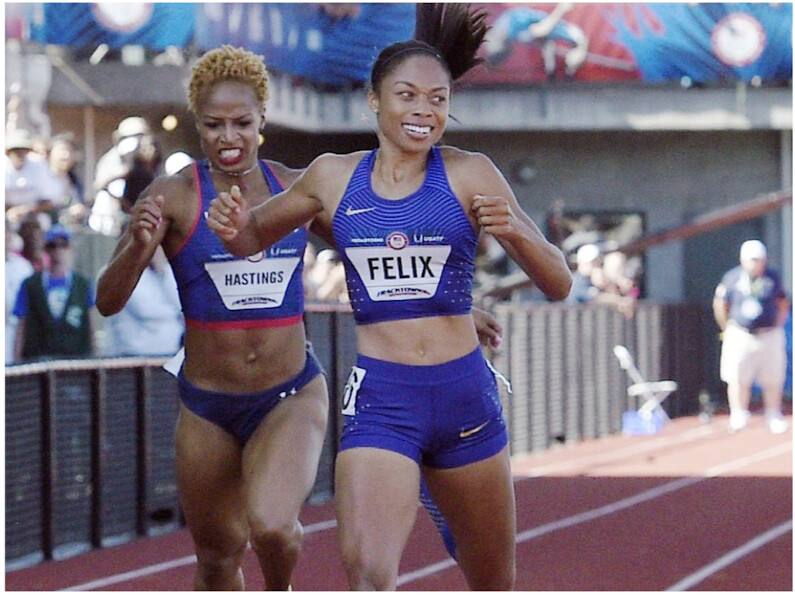
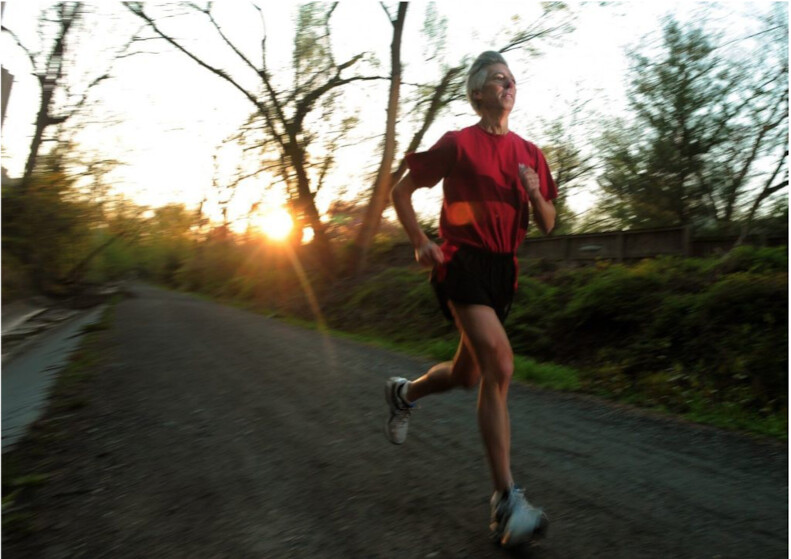
Willis first ran sub-4 during his undergrad at the University of Michigan in 2003 (3:58.15). At last weekend’s Millrose Games, Willis broke four minutes for the 63rd time in his career (3:59.71), which marked the 20th consecutive year he has run sub-4 miles. Willis is New Zealand’s only two-time Olympic medallist in the 1,500 metres, winning a silver medal in Beijing and bronze in Rio. In 2020, Willis passed his countryman, Sir John Walker, who previously held the consecutive sub-4 mile record of 18 years.
Simon Laporte – 46 years of running every day
At 46 years, the Notre-Dame des Prairies, Que. runner holds the longest active run streak in Canada. Laporte began his streak on Nov. 27, 1975, and hasn’t missed a day since. The 70-year-old run streaker has no plans to stop anytime soon, and he is planning for his streak to reach 50 in 2025. The longest active streak in the world is held by Jon Sutherland of Utah. Sutherland’s run streak of 52.7 years recently passed the legendary record set by Ron Hill (52.1) last year.
Streak Runners International (SRI) says for runs to qualify as a streak, they must cover at least one mile (1.61 kilometres) each day. The run may occur on the road, track, trails, or treadmill, but a minimum of one mile must be completed.
Lois Bastien – 41.8 years of running every day
Bastien holds the longest-standing women’s run streak record, at 42 years. She is now 79 and still runs every day in her home state of Florida.
Ben Beach – 54 consecutive Boston Marathons
Although Beach does not have the record for most Boston Marathon finishes (58), the 72-year-old marathoner does have the record for most consecutive Boston Marathons (54). Beach ran his first Boston in 1967 when he was 18. This year, Beach completed his 54th consecutive Boston Marathon, finishing in 5:47:27.
Allyson Felix – Five straight Olympic Games with a medal in track and field
U.S. sprinter Allyson Felix is one of the greatest female Olympians ever. She has not only represented her country at five straight Olympic Games, but she has also medalled at all of them (seven gold, three silver and one bronze) – a feat that no other female athlete has accomplished in track and field. Although Felix intended that Tokyo would be her last Olympics, her streak will remain active until Paris 2024, where Jamaican sprinter Shelly-Ann Fraser-Pryce will get the chance to equal her at five consecutive Olympics with a medal.
Karl Meltzer – a 20-year streak of winning a 100-mile race
Meltzer, 54, has been on the elite ultramarathon scene for more than 20 years. With his most recent win this year at the Beast of the East 100-miler, he has won a 100-miler for 20 consecutive years, bringing his career total to 45 wins over 100 miles. This is an unprecedented number, and the only person who can top it (for now, at least) is Meltzer himself.
by Running Magazine
Login to leave a comment
Ron Hill turned the art of marathon running into a science and wrote the playbook for generations to come wrote Seb Coe
A tribute to Ron Hill. World Athletics is deeply saddened to hear that Britain’s Ron Hill, the 1969 European marathon champion, died on Sunday May 23 at the age of 82.
Aside from his major championship medals and four world records, Hill is best known for his dedication to athletics. He laid claim to the longest unbroken streak of running every day, a stretch that lasted 52 years and 39 days, from 1964 to 2017.
Born in Accrington in the north-west of England in September 1938, Hill first came to prominence in the early 1960s and made his international debut at the 1962 European Championships in Belgrade. He failed to finish the marathon there, however, and fared only slightly better at the 1964 Olympic Games in Tokyo, finishing a distant 18th in the 10,000m and 19th in the marathon.
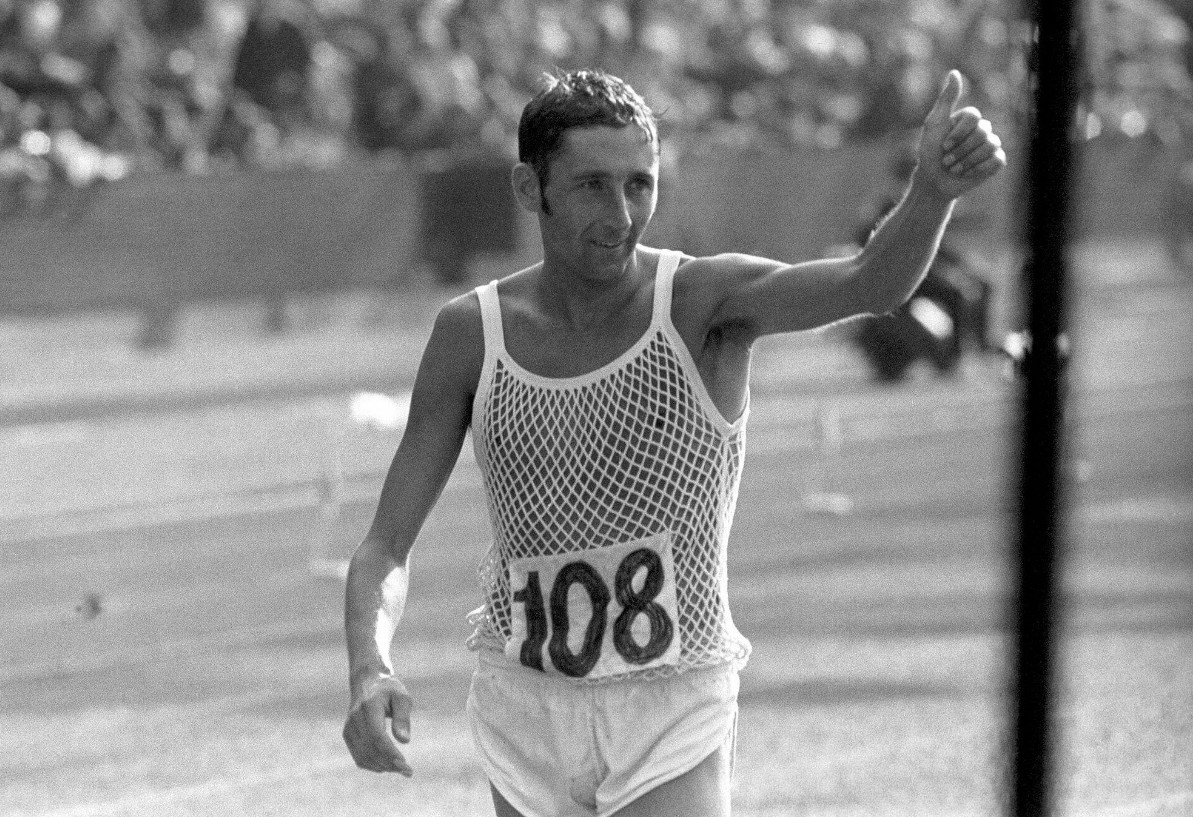
Hill rebounded one year later, though, and set the first world record of his career. Competing at the Leverhulme Park track in Bolton, Hill broke two of Emil Zatopek’s long-standing world records in one fell swoop, clocking 1:15:22.6 for 25,000m and passing through 15 miles en route in 1:12:48.2.
His championship performances started to improve in the late 1960s as he placed 12th in the marathon at the 1966 European Championships and seventh in the 10,000m at the 1968 Olympics, having been controversially overlooked for a place on the marathon team.
He set two more world records in 1968, both at 10 miles. In April he clocked 47:02.2 in Leicester to break Ron Clark’s record, passing through 10,000m in 29:09.4 and 15,000m in 43:54, an unofficial world best time.
Later that year, one month after his Olympic appearance, Hill attempted to break Gaston Roelants’ one hour world record of 20,784m. He fell slightly short of that target, covering 20,471m, but passed through 10 miles in a world record time of 46:44.0.
Though that was to be the last world record of his career, Hill became a big-time performer from that point onwards, winning big city marathons and landing major medals.
He won the European marathon title in Athens in 1969, then in 1970 he became the first British runner to win the Boston Marathon, smashing the course record by three minutes with 2:10:30. A few months later, at the Commonwealth Games in Edinburgh, he came the second man to break the 2:10 barrier for the marathon, winning gold in a European record of 2:09:28, having covered the final 10km in 29:24 (2:04 marathon pace).
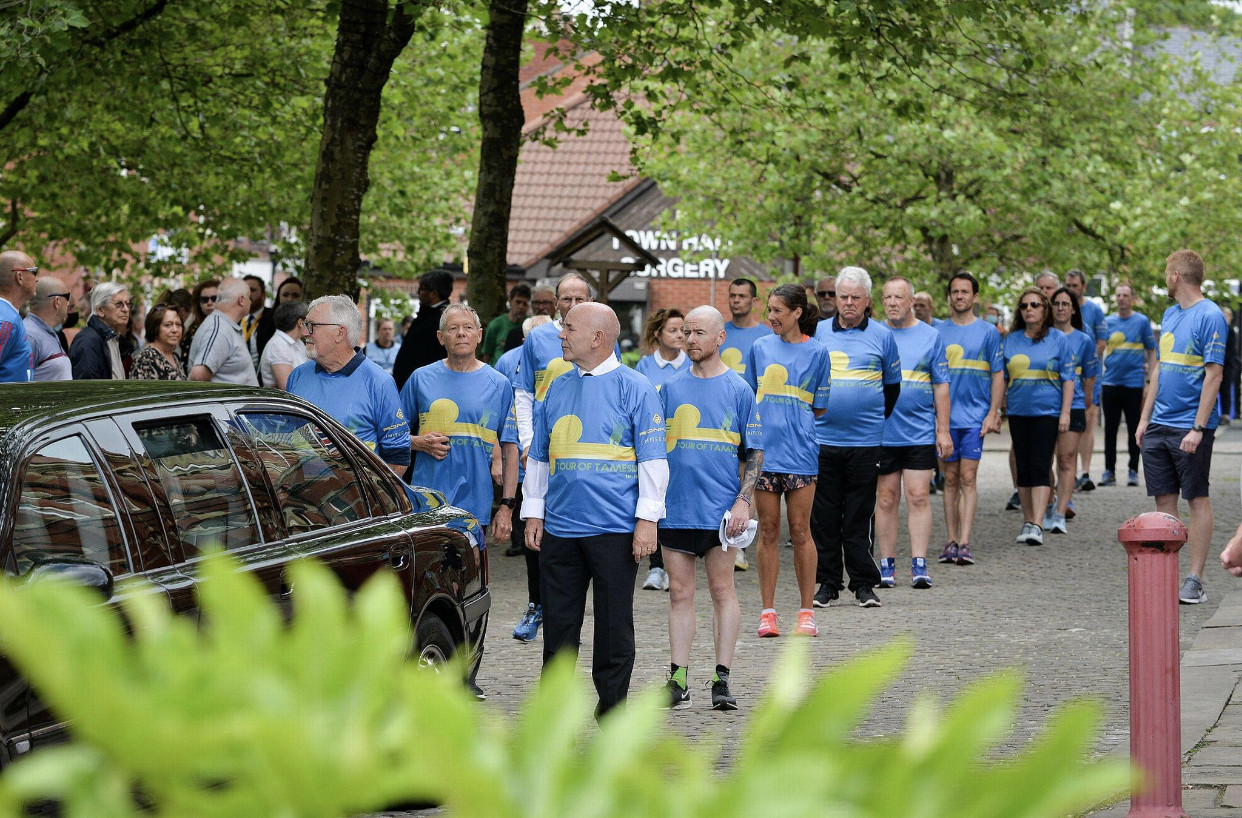
He went on to take bronze in the marathon at the 1971 European Championships before making his final Olympic appearance in 1972, placing sixth in the marathon – his highest ever finish at the Games.
Hill continued to produce world-class marathon times through the 1970s, including a 2:12:35 victory at the Debno Marathon in 1975 at the age of 36, ranking him eighth in the world that year. He finished fourth at the 1976 Olympic Trials, but went on to represent Britain at various masters championships.
Hill was ahead of his time with regards to training and he was one of the first elite athletes to use the Saltin-Hermansson diet – better known as the glycogen depletion diet or ‘carb-loading’ – which he credited as playing a big part in his success at the 1969 European Championships. Ever since, it has been adopted by millions of runners as a key part of marathon preparation.
Hill, who had a PhD in textile chemistry, often raced in breathable mesh vests to help keep cool. Towards the end of his elite career, he founded Ron Hill Sports and produced top-of-the-line running clothes. He also created the Ronhill and Hilly brands, both of which are still going strong today.
Hill’s streak of consecutive daily runs – which he defined as completing a distance of at least one mile at any pace – began on 20 December 1964 and lasted for more than 52 years. He even managed workouts after a car crash in 1993 when he broke his sternum, and after bunion surgery.
In December 2013 when his streak entered its 50th year, Hill’s total logged lifetime mileage stood at 158,628 miles. His streak ended on 30 January 2017 when he experienced chest pains during a run.
“I did everything I could to be the best in the world,” he said in 2019 in an interview with Inside The Games. “I couldn't train full-time, couldn't train at altitude, couldn't afford back-up support – I only ever had two massages in my life – and when I was injured I just had to run through it. I never made any money at it, but you can't take away the gold medals.”
World Athletics President Sebastian Coe paid tribute to Hill.
"Ron Hill turned the art of marathon running into a science and wrote the playbook for generations to come," said Coe. "He was a one-off. His contribution to the classic distance is immense."
by Sebastian Coe (World Athletics)
Login to leave a comment
Ron Hill, former British marathon runner dies at age 82
Every day between 1964 and 2017 the renowned British athlete Ron Hill ran at least a mile, setting a world record streak of 52 years and 39 days that still stands – even after snapping his sternum in a car accident in 1993.
Yet that was one of many achievements in a glorious career. For Hill, who has died at the age of 82, was also an Olympian, inventor, innovator and undoubtedly one of the country’s greatest marathon runners.
In 1970 he became the first Briton to win the Boston Marathon, breaking the course record, and won Commonwealth gold the same year in a time of 2hr 9min 28sec – becoming only the second man to ever go under 2hr 10min.
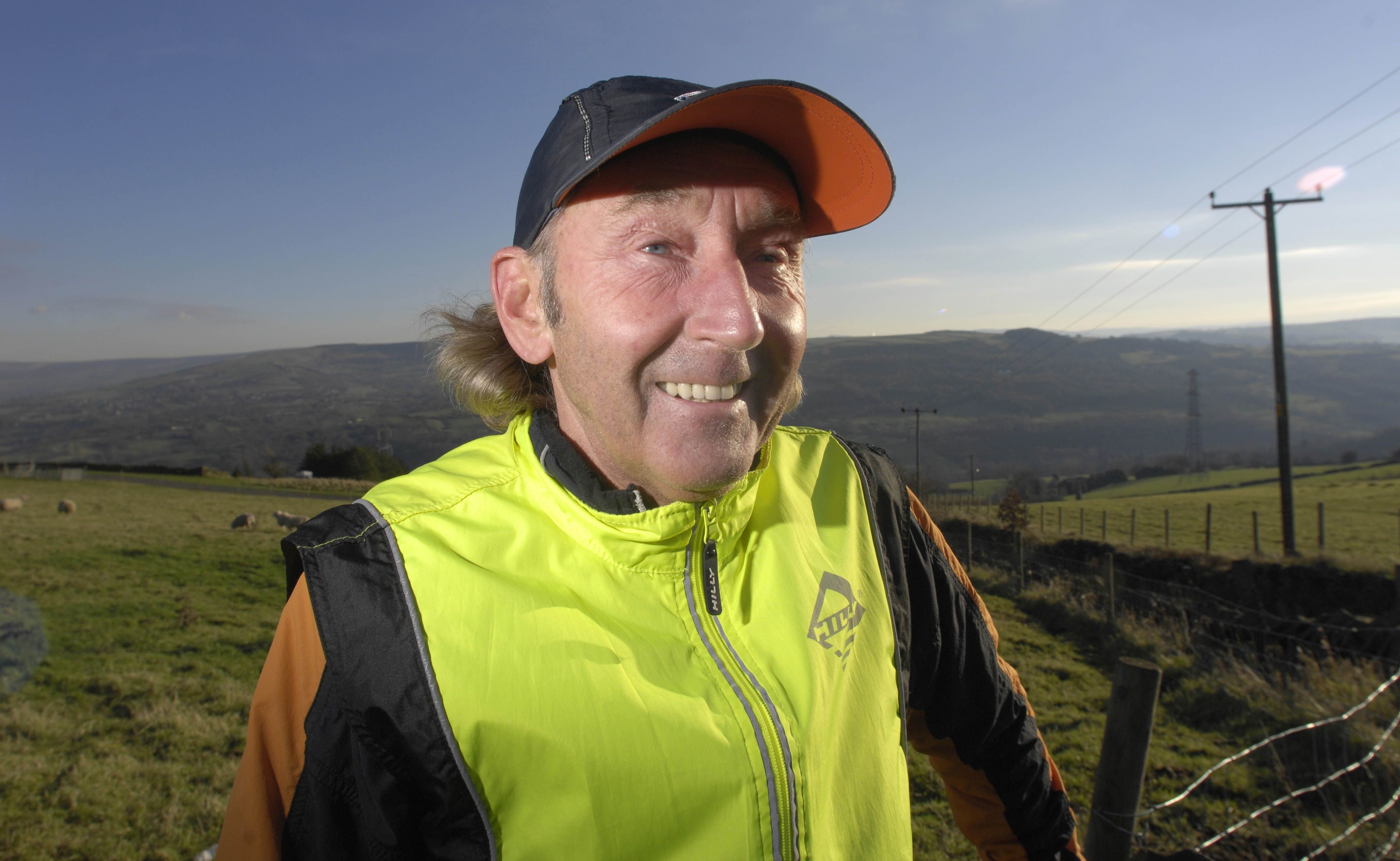
Hill also competed at the Olympics three times, finishing seventh in the Mexico 1968 Games despite running barefoot, and sixth in Munich four years later.
He was one of the pioneers of “carbo-loading” before a marathon to increase glycogen stores. And he used his PhD in textile engineering to good effect to invent and then race in breathable mesh vests to keep cool – a huge innovation at the time. His company Ron Hill Sports also led the way with their “trackster” tights before the lycra boom in the 1980s and 90s.
The tributes to Hill were led by Dave Bedford, the former 10,000m world record holder, who said Hill was “a great man, a great athlete, and a great influence to so many during the golden age of British distance running, including myself.
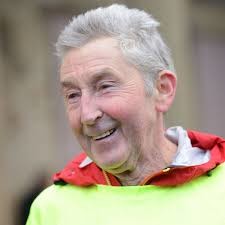
“His dedication to his sport was extraordinary, but he also stood out for being a great innovator,” he added. “He led the way with carbo-loading and with textiles. I doubt there is a British athlete in the last 30 years who hasn’t worn a pair of Ron Hill tracksters at some point. He will be deeply missed.
The 1991 world 10,000m champion Liz McColgan also paid her respects. “So sad to hear of the passing of marathon legend Ron Hill, an inspirational athletic icon over the years sincere condolences to his family. The wider running community will miss you. RIP.”
Hill’s clothing company Ronhill confirmed his death in a social media statement. “It is with immense sadness we today mourn the passing of British running legend Dr Ron Hill MBE, our founder, our inspiration, a husband, a father, a grandfather, a runner.”
Login to leave a comment
Andrew Davis set the British 40+ Record in Valencia clocking 2:14:36 for his age group breaking the previous 2:15:16 masters mark
After breaking the British M40 marathon record in Valencia this month, Andrew Davies plans to spend next year enjoying off-road races before returning to the roads to try to qualify for the Commonwealth Games in Birmingham in 2022.
The Welshman, who turned 40 on October 30, clocked 2:14:36 in Valencia on December 1 to break Steve Way’s national masters mark of 2:15:16 which was set in Glasgow in 2014. Before that, Ron Hill held the veterans’ record from 1979 for 34 years.
“We’ve planned it for quite a few years ago now and Valencia seemed potentially to be the first good one to do shortly after I turned 40,” says Davies, who also knocked more than half a minute off his PB. “I heard good feedback about it from other runners who said it was a fantastic marathon so I’ve been eyeing it up for quite a while.”
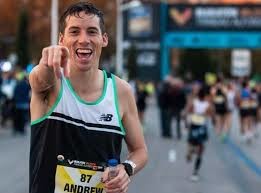
He added: “It was a pretty tough ask. I was at the Commonwealth Games when Steve Way broke the record so it’s quite nice that I know him quite well.
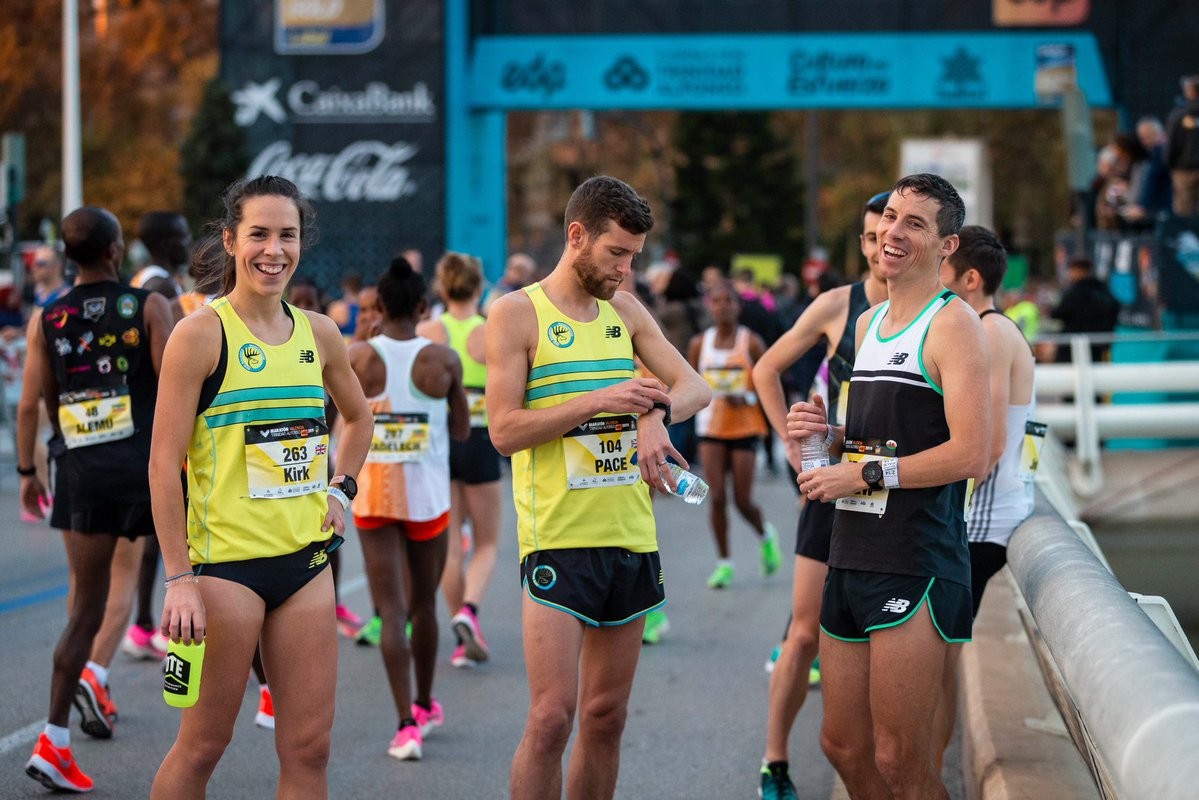
“I knew I was in quite good shape because I’d equaled my 5km PB in August (14:33) and also got a half-marathon PB in September (64:46), but it was still a case of nailing it on the day.”
Davies was paced by Jonny Mellor in Valencia and was also able to chase fellow Welshman Charlie Hulson, who clocked 2:14:22 on his marathon debut.
So what are Davies’ secrets of running so well aged 40? “I think I’m quite lucky in terms of injuries,” he explains. “I don’t do anything stupid in terms of mileage. If I have a cold or illness then we’re sensible and take it easy. I eat healthy and sleep a lot and have regular massage – all the usual stuff really. I think it’s all just come together, and it’s been a case of ticking over and doing the right things.”
Davies is based in mid-Wales and puts in some of his training miles with his dog as he does his long runs around Lake Vyrnwy on the edge of Snowdonia. He works four days a week as a college lecturer but has enjoyed Monday off as an easy day and also Thursday afternoons, in order to do a hard marathon session in recent months.
As for plans for 2020, Davies, who is coached by Steve Vernon, says: “Doing a marathon build-up twice a year is quite draining. I’m hoping to do a bit more trail running, especially during the early part of next year and will get back into the mountains where I belong.”
He adds: “I’d like to get the vet 40 record for a few other distances too – although some of the records are quite outstanding. I’d like to do Armagh (5km) in February for example, to try to get into the top few masters for that distance. When it comes to masters records, the marathon has been the ultimate one to get, though.”
by Jason Henderson
Login to leave a comment
VALENCIA TRINIDAD ALFONSO
The Trinidad Alfonso EDP Valencia Marathon is held annually in the historic city of Valencia which, with its entirely flat circuit and perfect November temperature, averaging between 12-17 degrees, represents the ideal setting for hosting such a long-distance sporting challenge. This, coupled with the most incomparable of settings, makes the Valencia Marathon, Valencia, one of the most important events in...
more...World Champions Lelisa Desisa and Ruth Chepngetich named Marathon Runners of the Year by the AIMS
This year’s World Marathon Champions Lelisa Desisa and Ruth Chepngetich are the Marathon Runners of the Year. The runners from Ethiopia and Kenya respectively were honored at the AIMS Best Marathon Runner (BMR) Gala in Athens tonight. The Gala, which was shown live on Greek TV, was staged by the Association of International Marathons and Distance Races (AIMS) and the Hellenic Athletics Federation, SEGAS. On Sunday the 37th edition of the "The Athens Marathon. The Authentic" will take place on the original course with a record field of 20,000 runners.
Three further distinctions were awarded by AIMS on Friday evening in Athens: the French journalist Alain Lunzenfichter, for a long time a reporter with the sports newspaper L’Équipe, received the AIMS Lifetime Achievement Award. The AIMS Green Award went to the Xiamen Marathon in China and the Harmony Geneva Marathon for UNICEF received the AIMS Social Award.
Two outstanding personalities in the sport of marathon running were also honored at the Gala on Friday evening: Britain’s Ron Hill and Stefano Baldini of Italy. Hill won the 1969 European title on the Athens course and Baldini took the Olympic title here in 2004. 15 years after his Olympic triumph, the Italian will be running the Athens Marathon once again. “I hope I can enjoy the race since Athens is a very special place for me,” said Stefano Baldini.
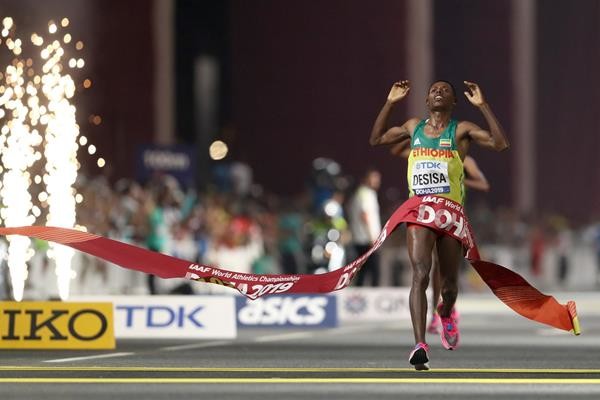
“We are honored to have the best marathon runners in the world here in Athens, where the marathon as well as the Olympic Games of the modern era began, and honor them at the Gala,” explained the president of the Hellenic Athletics Federation (SEGAS) Kostas Panagopoulos. The AIMS president, Paco Borao from Spain, spoke in referring to both winners: “No-one will be in any doubt that these two World champions, who won in extreme weather conditions in Doha, deserve to be the Best Marathon Runners.”

Lelisa Desisa is the first Ethiopian to have received this award which was first made in 2013. The most recent recipient was Kenya’s Olympic champion and world record holder Eliud Kipchoge who was awarded the prize for the last four years in succession. During the relevant period for the AIMS Best Marathon Runner, Lelisa Desisa won the New York Marathon in November 2018, running an impressive 2:05:59 on the difficult course. After a second place in Boston in April the 29-year-old Ethiopian won the World Championships marathon gold in Doha, Qatar a month ago. “The Olympic marathon in 2020 is my dream,” said Lelisa Desisa. “I want to follow in the footsteps of Abebe Bikila and win the gold. I hope I can inspire a new generation of young athletes by my success.”
Ruth Chepngetich established herself among the world’s best marathon runners with two outstanding victories: First she took the Istanbul Marathon in November 2018 with 2:18:35 then became the third fastest woman ever at that time when she won in Dubai in January with 2:17:08. At the end of September the 25 year-old took the World Championship title in Doha in extreme weather conditions. “It is a great honor to receive this award in Athens, where the marathon was born. This is a lifetime event in my career,” said Ruth Chepngetich. Asked about the world record, which was recently lowered to 2:14:04 by fellow-Kenyan Brigid Kosgei the BMR winner said: "I believe it is possible for me too to break the world record if I train accordingly.”
Among the distinguished international guests from Sport, Politics and Culture at the Gala on Friday evening in Athens was Greece’s Minister for Development and Investment, Adonis Georgiadis. “I ran the marathon myself last year and have to say, it was a once in a lifetime experience. I recommend everyone to run this race. The Athens Marathon stands for fun, happiness and energy,” added the Minister.
Login to leave a comment
Gene Dykes did it again by setting new US 100-mile and 24-hour M70 records in Pennsylvania
Gene Dykes, aka the #Ultrageezer, is a modest fellow, not given to trumpeting his achievements (especially after discovering that his takedown of Ed Whitlock’s M70 marathon world record at Jacksonville in December 2018 would not be ratified due to the race not being a USATF-sanctioned event).
This could be why we only just learned that last month at the Dawn 2 Dusk 2 Dawn 24-hour ultramarathon in Sharon Hill, Pennsylvania (not far from where he lives), in the pouring rain, Dykes quietly broke the M70 100-mile and 24-hour track records.
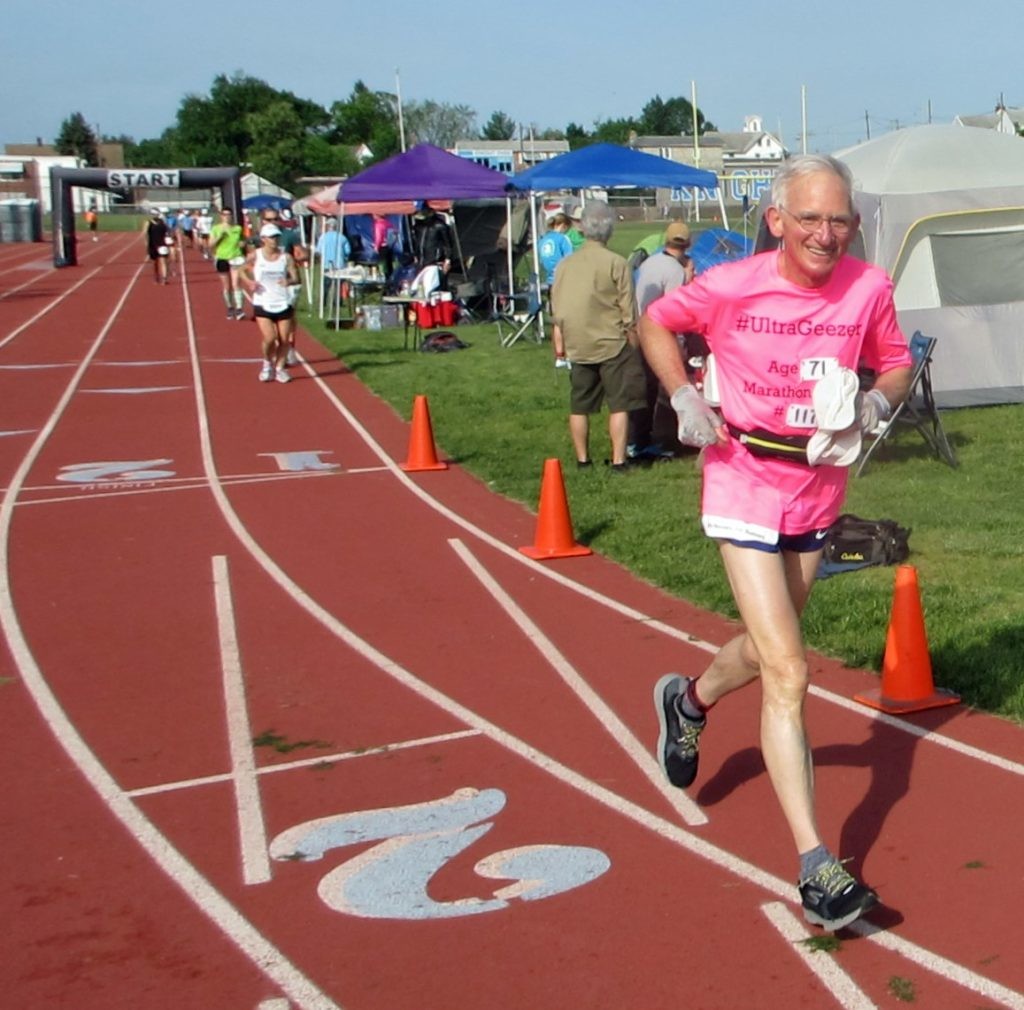
Dykes ran 100 miles in 21:06:07 and 111.79 miles (179.98K) over 24 hours. Records are ratified by the American Ultrarunning Association, though Dykes’ latest records have not been updated on the site. The previous records were both held by Edson Sower, 72, of Arizona, at 22:01:34 and 172.80K.
However, if you take a look, you’ll see that Dykes already holds the US age-group records in the 50K, 50-mile, 12-hour, and 100K categories. He set those last year at the same race.
“I am starting a 24-hour race,” Dykes posted on Facebook beforehand. “By 7:03, I will have seen the entire course!”
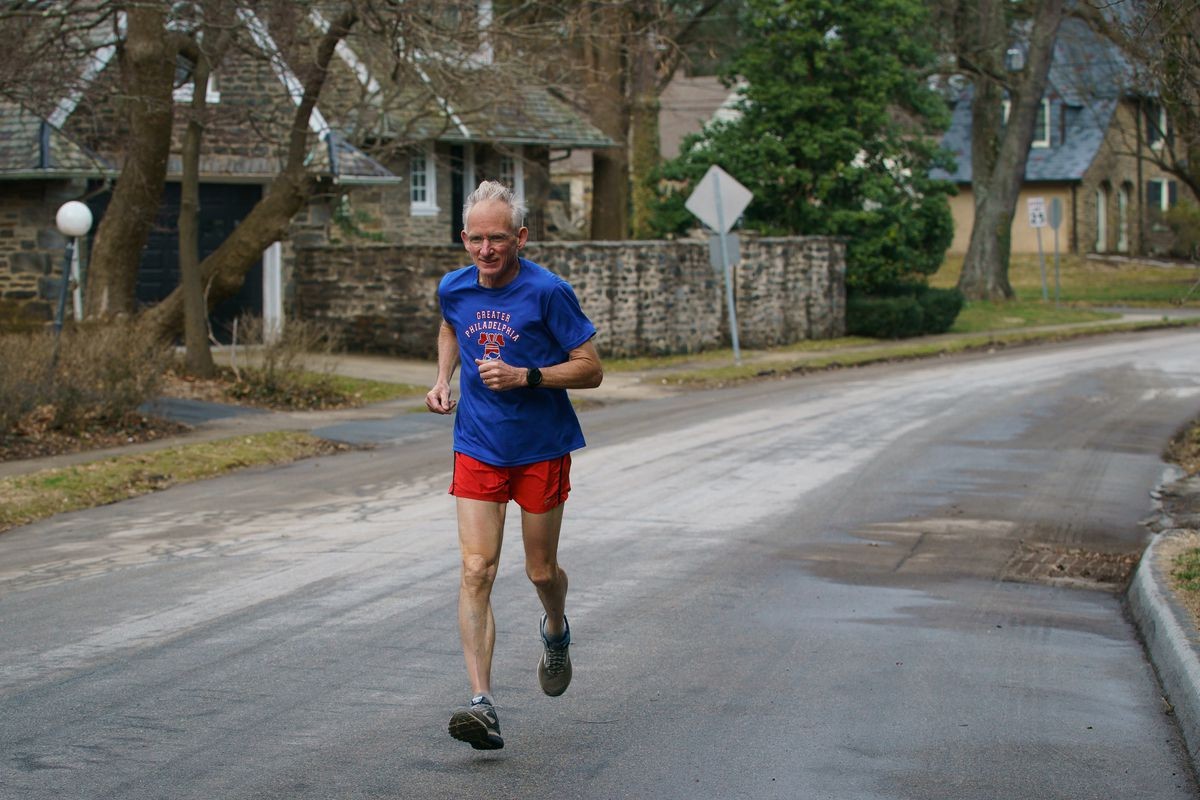
“I really have mixed feelings about fixed-time races,” Dykes goes on, “but the main feeling is, ‘I should really have my head examined!’ …The main reason I occasionally do them… is that I like to get out of my comfort zone now and then, but this race was WAY out of my comfort zone!”
As so often happens at long races, the weather changed drastically over the course of the day, and never conformed to what was forecast. “The forecast was promising–cloudy during the day with a high in the upper 60’s and showers at night–but what we got was something altogether different. Brilliant sunshine all day, and, not being prepared for that, I got some nasty sunburn on my calves.
At night it was cold, rainy, and windy–not the light rain I expected. Fortunately, I brought along a down jacket, which I wore under my raincoat, and heavy wool gloves.”
by Anne Francis
Login to leave a comment
Derek Clayton who held the World Marathon Record for 14 years, says shoes and pacemakers is why today's times are so fast
DID YOU KNOW: On June 12, 1965 Japan's Morio Shigematsu broke Abebe Bikila's world marathon record clocking 2:12:00 at the Polytechnic Marathon near London. Then on December 3, 1967 Australian's Derek Clayton shattered that record clocking 2:09:36 at the Fukuoka Marathon.
Derek was training over 250 miles a week and was clearly the world's best marathoner at that time. Then on May 30, 1969 he ran a marathon in Antwerp, Belgium mostly on cobble stones. He clocked 2:08:33 beating his own time by over a minute.
Skeptics throughout the following decades would speculate that the course must have been short. Yet only 11 days before his historic run in Belgium, Derek ran at high altitude and won a marathon in Turkey May 19th clocking 2:17:26.
“I had to run faster than I'd planned. If I hadn't run in Turkey I would have run 2:07 in Antwerp," Clayton said. "Maybe the course was short but Derek had nothing to do with that," says Bob Anderson, MBR & RW founder and a good friend of Derek.
"Any way, worse case scenario is that Derek held the world record he set in Fukuoka until Ron Hill ran faster (2:09:28) on July 23, 1970. That is two and half years.
Best case scenario, Derek held the world record for 14 years, until Robert De Castella ran 2:08:18 December 6, 1981 at Fukuoka. Derek was one of the world best marathoners of all times, the first under 2:10.
Yet even today when Derek's name comes up there is talk about the possible "short" course. I think it is about time we give him the credit that is due."
Yes, times today have gotten a lot better but there are two things that are clearly different today. "...the shoes they are wearing...and something I am dead set against, pacemakers," says Derek.
by Bob Anderson
Login to leave a comment
Running legend Ron Hill, has been diagnosed with Alzheimer’s disease
Inspirational Stories
Login to leave a comment
What is the World's Longest Running Streak?
Login to leave a comment


